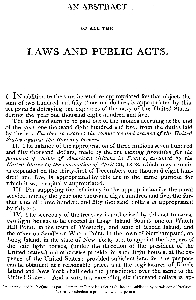 ―81― ―81―
AN ABSTRACT
of all the
LAWS AND PUBLIC ACTS.
I. IN addition to the sum heretofore appropriated for that object, the
sum of two hundred and fifty thousand dollars, is appropriated by this
act towards defraying the expences of the navy of the United States,
during the year one thousand eight hundred and five.
The aforesaid sum to be paid out of the monies accruing at the end
of the year one thousand eight hundred and five, from the duties laid
by the act, Further to protect the commerce and seamen of the United
States against the Barbary powers.
II. The balance of the appropriation of three millions seven hundred
and fifty thousand dollars, made by the act making provision for the
payment of claims of American citizens in France, assumed by the
United States by the convention of April 30, 1803, which may remain
unexpended on the thirty-first of December, one thousand eight hun-
dred and five, is appropriated by this act to the same purpose for
which it was originally appropriated.
III. For supplying the deficiency in the appropriation for the naval
service, during the year one thousand eight hundred and five, the fur-
ther sum of three hundred and fifty thousand dollars is appropriated
by this act.
IV. The secretary of the treasury is authorised by this act to cause
two light houses to be erected in Long Island Sound, one on Watch
Hill Point, in the town of Westerly, and state of Rhode Island, and
the other on Sand's or Watch Point, in the town of Northampsted, on
Long Island, in the state of New York, and to appoint the keepers of
the said light houses, (under the direction of the president of the
United States,) and otherwise provide for such light houses, at the ex-
pence of the United States; provided sufficient land for the purpose
can be obtained at a reasonable price, and the legislatures of Rhode
Island and New York shall cede the jurisdiction over the same to the
United States. And a sum not exceeding six thousand dollars is ap-
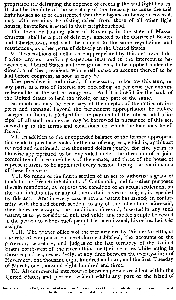 ―82― ―82―
propriated for defraying the expence of erecting the said lighthouses.
It shall be the duty of the secretary of the treasury to cause the said
light houses so to be constructed that their lights, on being discovered,
may with certainty be distinguished from those of all other light
houses, heretofore erected in their neighbourhood.
The town or landing place of Roxbury, in the state of Massa-
chusetts, shall be a port of delivery, annexed to the district of Boston
and Charlestown, and shall be subject to the same regulations and
restrictions, as other ports of delivery in the United States.
V. Two millions of dollars are appropriated by this act toward de-
fraying any extraordinary expences incurred in the intercourse be-
tween the United States and foreign nations, to be applied under the
direction of the president, who shall cause an account thereof to be
laid before congress, as soon as may be.
The president is authorized, if necessary, to borrow this sum, or
any part, at a rate of interest not exceeding six per cent per annum,
redeemable at the will of congress. And it is lawful for the bank of
the United States to lend the whole, or any part of the same.
So much as may be necessary of the surplus of the duties on im-
ports and tonnage, beyond the permanent appropriation heretofore
charged on them, is pledged for the payment of the interest and prin-
cipal of all such monies as may be borrowed in pursuance of this act,
according to the terms and conditions on which the loan may be ef-
fected.
VI. In addition to the unexpended balance of the former appropria-
tion made to purchase books for the use of congress, which is, by this act
revived and continued, one thousand dollars yearly, for five years is
likewise appropriated to be expended under the direction of a joint
committee of three members of the senate, and three of the house of
representatives, to be appointed every session during the continuance
of these five years.
VII. So much of the fourth section of an act to authorize a grant of
lands to the French inhabitants of Galliopolis, and for other purposes
therein mentioned, as imposes the condition of an actual settlement on
the said inhabitants, or any of them, their heirs or assigns, is repealed
by this act. And in every case where a patent has issued, in confor-
mity with the said fourth section, to any of the inhabitants aforesaid,
their heirs or assigns, the conditions aforesaid, inserted in any such
patent, is to be considered null and void; and the fee simple be vested
in the person to whom such patent has been issued, his or her heirs or
assigns.
VIII. The proper officers of the treasury are by this act to settle, at
the rate of compensation heretofore established, the accounts of the
governor, secretary, and judges of the late territory of the United
States north-west of the river Ohio, for their services while acting in
those capacities, respectively, at any time between the twenty-ninth of
November, one thousand eight hundred and two, and the first Tuesday
of March, one thousand eight hundred and three.
IX. All commercial intercourse between persons resident within the
United States, and persons resident within any part of the island of
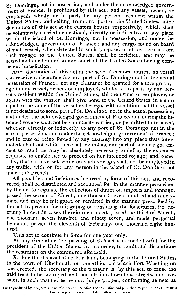 ―83― ―83―
St. Domingo, not in possession, and under the acknowledged govern-
ment of France, is prohibited by this act: and any vessel, owned, or
employed, wholly or in part, by any persons resident within the
United States, and sailing from any port of the United States, after
due notice of this act at the custom houses respectively, which shall
be voluntarily carried or destined, directly or indirectly, to any place
within the island of St. Domingo, not in possession, and under the
acknowledged government of France; and any cargo found on board
of such vessel, when detected in such purpose, or at her return from
such voyage to the United States, shall be forfeited, and may be
seized and condemned in any court of the United States having com-
petent jurisdiction.
After due notice of this act at the several custom houses, no vessel
can receive a clearance for any port of St. Domingo not in the actual
possession of France; nor any clearance be granted for a foreign voy-
age to any vessel, owned, or employed, wholly or in part, by any per-
sons resident within the United States, till the owner or employer, or
agent, with the master, shall give bond to the United States in a sum
equal to the value of the vessel and cargo, with condition that the vessel
is not destined to some port of St. Domingo, not in the actual possession,
and under the acknowledged government of France, and during the in-
tended voyage shall not be voluntarily carried, or permitted to proceed,
whether directly or indirectly, to any port of St. Domingo not in the
actual possession, and under the acknowledged government of France;
and in case of being forced by any casualty into any place thus inter-
dicted, shall not while there sell or unlade any part of such cargo, ex-
cept so much as may be absolutely necessary to defray the expences
requisite to enable her to proceed on her intended voyage; and, gene-
rally, that such vessel, while on such voyage, shall not be employed in
any traffic, with or for any person in the island of St. Domingo not
under the French.
All penalties and forfeitures incurred by force of this act, and reco-
vered, shall be distributed and accounted for, in the manner prescribed
by the act to regulate the collection of duties on imports and tonnage,
passed the second of March, one thousand seven hundred and ninety-
nine, and may be mitigated or remitted in the manner prescribed by
the act to provide for mitigating or remitting the forfeitures, &c. ac-
cruing in certain cases therein mentioned, passed the third of March,
one thousand seven hundred and ninety seven, and made perpetual
by an act passed the eleventh of February, one thousand eight hun-
dred.
This act to continue in force for one year only.
At any time after the passing of this act it is made lawful for the
president of the United States, by his order, to remit and discontinue
the restraints on the commerce aforesaid.
X. For the disposal of certain land, belonging to the United States,
in the town of Cincinnati, on the Ohio, on which Fort Washington
was erected, the secretary of the treasury is, by this act, to cause the
said tract to be surveyed and laid off into town lots, streets, and ave-
nues, in such manner as he may judge proper, conforming as near as
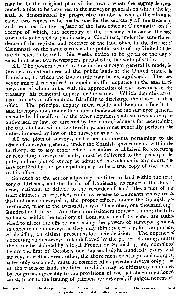 ―84― ―84―
may be to the original plan of the town: when the survey is com-
pleted, a plat to be returned to the surveyor general, on which the lots
shall be denominated by progressive numbers, who is therefrom to
cause two copies to be made, one for the secretary of the treasury,
and the other for the register of the land office at Cincinnati; on the
receipt of which, the secretary of the treasury is to cause the said
town lots to be sold at public sale, at Cincinnati, under the superinten-
dence of the register and receiver of the land office in the district of
Cincinnati, on the same terms as the public lands of the United States
are directed to be sold. Six weeks notice to be given of the day of
sale, in at least two newspapers published in the state of Ohio.
XI. The powers vested by law in the surveyor general is made, by
this act, to extend over all the public lands of the United States, in
Louisiana, to which the Indian title may be extinguished. The sur-
veyor general is required to appoint skilful deputies in the said terri-
tory, one of whom to be, with the approbation of the secretary of the
treasury, his principal deputy for the same. Which deputies are to
take an oath, or affirmation, faithfully to discharge the duties of their
office. The principal deputy must reside and keep an office in the
said, territory, and, under the superintendence of the surveyor general,
execute by himself, or by the other deputies, such surveys as may be
authorised by law, or directed by the commissioners for ascertaining
the titles to land within the territory, and must generally perform the
duties imposed by law on the surveyor general.
All the plots of surveys, and other documents pertaining to the
office of surveyor general, under the Spanish government, within the
territory, or to any other office heretofore established for executing
or recording surveys of lands, must be delivered to the principal de-
puty, and no plot of survey be admitted as evidence in any court, un-
less certified by the principal deputy to be a true copy of the record
in his office.
So much of the act for adjusting the titles to land within the terri-
tory of Orleans, and the district of Louisiana, as makes it the duty of
every claimant to deliver to the recorder of land-titles a plot of the
tract claimed, is repealed, so far as relates to claimants whose tracts
had not been surveyed by the proper officer, under the Spanish go-
vernment, prior to the twentieth day of December, one thousand eight
hundred and three. And the commissioners for ascertaining the titles
to lands, within the territory of Louisiana, or of Orleans, are autho-
rized to direct the officer exercising the powers of surveyor general,
to execute such surveys as they may think necessary, for the purpose
of deciding on claims presented for their decision. The expence of
executing such surveys to be defrayed by the parties claiming, unless
the same be claimed by a legal French or Spanish grant, completed
before the first of October, one thousand eight hundred; every such
survey, as well as every other, the above mentioned legal and complete
titles only excepted, must be considered as private surveys only; and
all the tracts of land, the titles to which may be ultimately confirmed
by congress, agreeably to the provisions of the act above mentioned,
must, prior to the issuing of patents, be surveyed, if judged necessary,
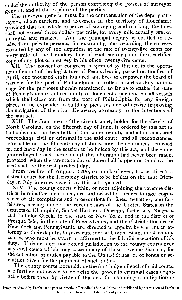 ―85― ―85―
under the authority of the person exercising the powers of surveyor
general, and at the expence of the parties.
The surveyor general must fix the compensation of the deputy sur-
veyors, chain carriers, and axe-men, in the territory of Louisiana:
provided that the whole expence of surveying and marking the lines
shall not exceed three dollars per mile, for every mile actually run, or
surveyed and marked. And the principal deputy is entitled to re-
ceive from private persons, for examining and recording the surveys
executed by any of the deputies, at the rate of twenty-five cents for
every mile of the boundary line of such survey; and. for a certified
copy of any plot of a survey in his office, twenty-five cents.
XII. The consent of congress is granted by this act to the opera-
tion of an act of the legislature of Pennsylvania, passed on the first of
April, one thousand eight hundred and five, to empower the board of
wardens for the port of Philadelphia to collect a certain duty on ton-
nage for the purposes therein mentioned, so far as to enable the state
of Pennsylvania to collect a duty of four cents per ton, on all vessels
which shall clear out from the port of Philadelphia for any foreign
place, to be expended in building piers in, and otherwise improving
the navigation of the river Delaware, agreeably to the intentions of
the said act.
XIII. The June term of the circuit court, holden for the district of
North Carolina, on the fifteenth day of June, is ordered by this act to
be holden on the twentieth of the same month, and all actions, and
proceedings civil or criminal in the said court, and all recognizances
returnable on the fifteenth day of June, must be continued, returned
to, and have day in the session to be holden by this act, and the same
proceedings be had thereon as if this alteration had never been made,
provided, when the twentieth day of June shall happen on Sunday, the
next shall be the first juridical day.
From the first of August, 1806, so much of every law as directs a
district court for the Kentucky district to be holden on the first Mon-
day in July in every year is by this act repealed.
XIV. The county courts within, or next adjoining the revenue dis-
tricts hereinafter mentioned, are authorised by this act to take cogni-
zance of all complaints and prosecutions for fines, penalties, and for-
feitures, arising under the revenue laws of the United States in the
districts of Champlain, Sacket Harbour, Oswego, Genessee, Niagara,
and Buffaloe Creek, in the state of New York, and in the district of
Presque Isle, in the state of Pennsylvania, and the district attornies of
New York and Pennsylvania are directed to appoint by warrant an at-
torney as their deputy, to prosecute for the United States in the county
courts, who must be sworn or affirmed to the faithful execution of his
duty. This act does not extend jurisdiction to the county courts over
any civil cause which may arise in any of those revenue districts, for
the collection of duties payable to the United States, or of bonds or se-
curities given for the payment of such duties.
The county courts aforesaid, or the first judge of each of said courts,
are further authorized to exercise the power in criminal cases cogni-
zable before them by virtue of this act, for obtaining a mitigation or
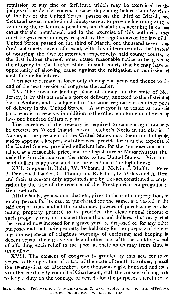 ―86― ―86―
remission of any fine or forfeiture which may be exercised by the
judges of the district courts, in cases depending before them by virtue
of the law of the United States, passed on the third of March, one
thousand seven hundred and ninety-seven, to provide for mitigating or
remitting the forfeitures, penalties, and disabilities, accruing in certain
cases therein mentioned, and in the exercise of this authority they
must be governed in every respect by the regulations of the law of the
United States, passed on the third of March, onethousand seven hun-
dred and ninety-seven, aforesaid, with this difference only, that instead
of notifying the district attornies respectively, said county courts, or
the first judges thereof, must cause reasonable notice to be given to
the attorney for the United States in such court, that he may have an
opportunity of showing cause against the mitigation or remission of
such fine or forfeiture.
This act to remain in force only during one year, and thence to the
end of the next session of congress thereafter.
XV. The town or landing place of Jersey, in the state of New
Jersey, is by this act made a port of delivery, annexed to the district of
Perth Amboy, and is subjected to the same regulations as other ports
of delivery in the United States. A surveyor is to reside at the said
port, who is to receive, in addition to the other emoluments allowed by
law, one hundred dollars a year.
The secretary of the treasury is required to cause a light house to
be erected on Wood Island, or on Fletcher's Neck, in the district of
Maine, as the president of the United States may deem most eligible,
and to appoint a keeper, and otherwise provide for it at the expense of
the United States, provided sufficient land for the purpose can be ob-
tained at a reasonable price, and the legislature of Massachusetts shall
cede the jurisdiction over the same to the United Stales. Five thou-
sand dollars is appropriated for the erection of the light house.
XVI. Stephen B. Balsh, W. Whann, J Melvin, J. Maffit, J. Peter,
J. Dawson, J. Calder, G. Thompson, R. Elliott, D. Wiley, and A. Ross,
and their sucessors duly appointed, are by this act constituted a corpo-
ration by the title of the trustees of the Presbyterian congregation in
George-town.
All the lands, goods, and chattels, given to the said congregation, or
to any person for its use, or purchased for the same, are vested in the
said corporation, and all the customary powers of purchasing or alie-
nating property granted to it, provided the clear annual income of
such property may not exceed three thousand dollars, that no part of
the ground now inclosed for a grave yard be disposed of for any other
purpose, and that their property be held only for the purpose of defray-
ing the expenses of religious worship, of enclosing and keeping in
decent repair their grave yards and other lots with the buildings, and
of affording such relief to the poor as their funds may from time to
time allow.
XVII. The consent of congress is granted by this act, for three
years, to the operation of a law of the state of South Carolina, passed
the twenty-first of December, one thousand eight hundred and four,
to authorise the city council of Charleston, with the consent of congress,
to levy a duty on the tonnage of vessels for the purposes therein men-
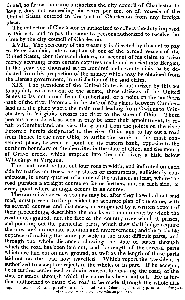 ―87― ―87―
tioned, so far as the same authorizes the city council of Charleston to
levy a duty not exceeding six cents per ton, on all vessels of the
United States entered in the port of Charleston from any foreign
place.
The collector of Charleston is authorized to collect the duty imposed
by this act and to pay the same to persons authorized to receive the
same by the city council of Charleston.
XVIII. The secretary of the treasury is directed by this act to pay
to Peter Landais, late a captain of one of the armed vessels of the
United States, four thousand dollars, on account of his claim to prize
money accruing from certain captures made and carried into Bergen,
in the year one thousand seven hundred and seventy-nine, to be de-
ducted from his proportion of the money which may be obtained from
the Danish government, in satisfaction of the said claim.
XIX. The president of the United States is authorized by this act
to appoint, with consent of the senate, three citizens of the United
States to lay out a road from Cumberland, or a point on the northern
bank of the river Potomac, in the state of Maryland, between Cumber-
land and the place where the main road leading from Gwinns to Win-
chester, in Virginia, crosses the river to the state of Ohio. These
persons are ordered, as soon as may be after their appointment, to re-
pair to Cumberland, and view the ground from the points on the river
Potomac herein designated to the river Ohio, and to lay out a road
from thence to the river Ohio, to strike the same at the most con-
venient place, between a point on its eastern bank, opposite to the-
northern boundary of Steubenville, in the state of Ohio, and the mouth
of Grave creek, which empties into the said river, a little below
Wheeling, in Virginia.
The road must be laid out four rods in width, and indicated on each
side by marks on trees, or by stakes or monuments, sufficiently con-
spicuous, in every quarter of a mile of the distance, at least, where the
road pursues a straight course so far or farther, and on each side, at
every point where an angle occurs in its course.
The commissioners, as soon as may be, after they have laid out said
road, must present to the president an accurate plan of the same, with
its several courses and distances, accompanied by a written report of
their proceedings, describing the marks and monuments by which the
road is designated, and the face of the country over which it passes,
and pointing out the particular parts, which they shall judge require
the most and immediate attention and improvement; and the probable
expence of making the same passable in the most difficult parts, and
through the whole distance: showing the state or states through
which the road has been laid out, and the length of the several parts
which are laid out on new ground, as well as the length of those parts
laid out on the road now travelled. Which report the president is
authorized to accept or reject, in the whole, or in part. If he accepts,
he is further authorized to obtain consent for making the road, of the
state or states through which the same has been laid out. He is fur-
ther authorized to cause the road to be made through the whole dis-
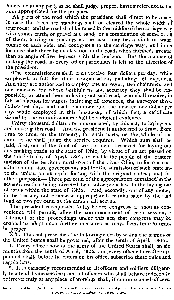 ―88― ―88―
tance, or in any part, as he shall judge proper, having reference to the
sum appropriated for the purpose.
All parts of the road which the president shall direct to be made,
in case the trees are standing, shall be cleared the whole width of
four rods; and the road shall be raised in the middle of the carriage way
with stone, earth, or gravel and sand, or a combination of some or all
of them, leaving or making, as the case may be, a ditch or water
course on each side, and contiguous to the carriage way; and in no
instance shall there be an elevation in the road, when finished, greater
than an angle of five degrees with the horizon. But the manner of
making the road, in every other particular, is left to the direction of
the president.
The commissioners shall each receive four dollars per day, while
employed, in full for their compensation, including all expences.
And they are authorized to employ one surveyor, two chainmen, and
one marker, for whose faithfulness and accuracy they shall be res-
ponsible, to attend them in laying out said road, who shall receive, in
full satisfaction for wages, including all expences, the surveyor three
dollars per day, and each chainman and the marker one dollar per
day, while employed in this business; of which fact, a certificate
signed by the commissioners shall be sufficient evidence.
Thirty thousand dollars are appropriated, by this act, to laying out
and making this road. And the president is authorized to draw, from
time to time, on the treasury, for such parts, or the whole of the
sum, as he shall judge the service requires. Which sum shall be
paid, first, out of the fund of two per cent, reserved for laying out
and making roads to the state of Ohio, by virtue of an act passed on
the thirtieth day of April, 1802, to enable the people of the eastern
division of the territory north-west of the river Ohio, to form a con-
stitution and state government, and for the admission of such state in-
to the union, on an equal footing with the original states; and for
other purposes.—Thee per cent, of the appropriation contained in the
seventh section being directed by a subsequent law to the laying out
of roads within the state of Ohio. And, secondly, out of any money
in the treasury not otherwise appropriated, reimbursable by the said
fund of two per cent, as the same shall accrue.
The president is requested to lay before congress, a soon as con-
venience will permit, after the commencement of each session, a
statement of the proceedings under this act, that congress may be
enabled to adopt such further measures as may, from time to time,
be proper.
XX. This act prescribes the following rules by which the armies of
the United States shall be governed, after the tenth of April, 1806:
1. Every officer now in the army of the United States shall, in six
months from the tenth of April, 1806, and every officer hereafter ap-
pointed shall, before he enters on his office, subscribe these rules and
regulations.
2. It is earnestly recommended to all officers and soldiers diligent-
ly to attend divine service; and all officers who shall behave indecently
or irreverently at any place of worship shall, if commissioned officers,
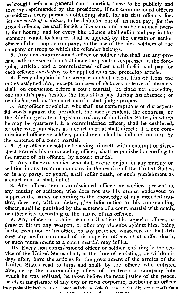 ―89― ―89―
be brought before a general court martial, there to be publicly and
severely reprimanded by the president; if non commissioned officers
or soldiers, every person so offending shall, for his first offence, for-
feit one sixth of a dollar, to be deducted out of his next pay; for the
second offence, he shall forfeit a like sum, and also be confined twen-
ty-four hours; and for every like offence shall suffer and pay in like
manner; which forfeitures shall be applied, by the captain or senior
officer of the troop or company, to the use of the sick soldiers of the
company or troop to which the offender belongs.
3. Any non commissioned officer or soldier who shall use any pro-
fane oath or execration shall incur the penalties expressed in the fore-
going article; and a commissioned officer shall forfeit and pay for
each offence one dollar, to be applied as in the preceding article.
4. Every chaplain in the army who shall absent himself from the
duties assigned him, except in cases of sickness or leave of absence,
shall, on conviction before a court martial, be fined not exceeding
one month's pay, besides the loss of his pay during his absence; or
be discharged, as the court martial shall judge proper.
5. Any officer or soldier, who shall use contemptuous or disrespect-
ful words against the president, the vice president, the congress, or
the chief magistrate or legislature of any of the United States, in which
he may be quartered, if a commissioned officer, shall be cashiered,
or otherwise punished, as a court martial shall direct; if a non com-
missioned officer or soldier, punishment shall be inflicted on him by
the sentence of a court martial.
6. Any officer or soldier behaving himself with contempt or disre-
spect towards his commanding officer, shall be punished according to
the nature of his offence, by a court martial.
7. Any officer or soldier who shall excite or join in any mutiny or
sedition in any troop or company in the service of the United States,
or in any party, or guard, shall suffer death, or such punishment as
a court martial shall inflict.
8. Any officer, non commissioned officer or soldier, present at
any mutiny or sedition, who does not use his utmost endeavour to
suppress the same, or coming to the knowledge of any intended mu-
tiny, does not, without delay, give information to his commanding
officer, shall be punished by the sentence of a court martial with death,
or otherwise, according to the nature of his offence.
9. Any officer or soldier who shall strike his superior officer, or
draw or lift up any weapon, or offer any violence against him, being
in the. execution of his office, on any pretence whatever, or shall dis-
obey any lawful command of his superior officer, shall suffer death,
or such punishment as a court martial may inflict.
10. Every non commissioned officer or soldier enlisting in the ser-
vice of the United States shall, at the time of enlisting, or within six
days after, have the articles for the government of the armies of the
United States read to him, and shall, by the officer who enlisted
him, or by the commanding officer of the troop or company into
which he was enlisted, be taken before the next justice of the peace,
or chief magistrate of any city or town corporate, not being an officer
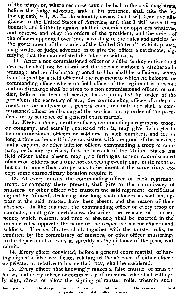 ―90― ―90―
of the army, or, where recourse cannot be had to the civil magistrate,
before the judge advocate, and, in his presence, shall take the fol-
lowing oath, “I, A. B., do solemnly swear, that I will bear true alle-
giance to the United States of America, and that I will serve them
honestly and faithfully against all their enemies or opposers whatever,
and observe and obey the orders of the president, and the orders of
the officers appointed over me, according to the rules and articles for
the government of the armies of the United States:” Which justice,
magistrate, or judge advocate, is to give the officer a certificate, sig-
nifying that the man enlisted did take the said oath,
11. After a non commissioned officer or soldier is duly enlisted and
sworn, he shall not be dismissed the service without a discharge in
writing; and no discharge granted to him shall be sufficient, which
is not signed by a field officer of the regiment to which he belongs, or
commanding officer where no field officer of the regiment is present;
and no discharge shall be given to a non commissioned officer, or sol-
dier, before his term of service has expired, but by order of the
president, the secretary of war, the commanding officer of a depart-
ment, or the sentence of a general court martial; nor shall a com-
missioned officer be discharged the service, but by order of the presi-
dent, or by sentence of a general court martial.
12. Every colonel, or other officer, commanding a regiment, troop,
or company, and actually quartered with it, may give furloughs to
non commissioned officers or soldiers, in such numbers, and for so
long a time as he shall judge consistent with the good of the service;
and a captain, or other inferior officer, commanding a troop or com-
pany, or in any garrison, fort, or barrack of the United States, his
field officer being absent, may give furloughs to non commissioned
officers or soldiers, for a time not exceeding twenty days in six months,
but not to more than two persons to be absent at the same time, ex-
cept some extraordinary occasion require it.
13. At every muster the commanding officer of each regiment,
troop, or company there present, shall give to the commissary of
musters, or other officer who musters the said regiment, certificates
signed by himself, declaring how long such officers as shall not ap-
pear at the said muster, have been absent, and the reason of their
absence. In like manner, the commanding officer of every troop or
company, shall give certificates, declaring the reasons of the ab-
sence, which reasons, and time of absence, shall be inserted in the
muster rolls, opposite the name of the respective absent officers and
soldiers. The certificates shall, together with the muster rolls, be
remitted by the commissary of musters, or other officer mustering,
to the department of war, as speedily as the distance of the place will
admit.
14. Every officer convicted, before a general court martial, of hav-
ing signed a false certificate, relating to the absence of either officer
or private, or relative to his or their pay, shall be cashiered.
15. Every officer that knowingly makes a false muster of man or
horse, and every officer or commissary of musters, who shall willing-
ly sign, direct or allow the signing of muster rolls, wherein such
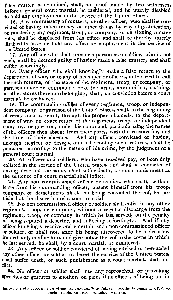 ―91― ―91―
false muster is contained, shall, on proof made by two witnesses,
before a general court martial, be cashiered, and be utterly disabled
to hold any employment in the service of the United States.
16. Any commissary of musters, or other officer, who shall be con-
victed of having taken money or other thing, by way of gratification,
on mustering any regiment, troop, or company, or on signing muster
rolls, shall be displaced from his office, and shall be thereby utterly
disabled to have or hold any office or employment in the service of
the United States.
17. Any officer who shall muster a person as a soldier, who is not
such, shall be deemed guilty of having made a false muster, and shall
suffer accordingly.
18. Every officer who shall knowingly make a false return to the
department of war, or to any of his superior officers, authorized to call
for such returns, of the state of the regiment, troop, or company, or
garrison under his command; or of the arms, ammunition, clothing,
or other stores thereunto belonging, shall, on conviction before a court
martial, be cashiered.
19. The commanding officer of every regiment, troop, or indepen-
dent company, or garrison of the United States, shall, in the beginning
of every month, remit, through the proper channels, to the depart-
ment of war, an exact return of the regiment, troop, or independent
company, or garrison, under his command, particularizing the names
of the officers then absent from their posts, with the reasons for, and
the time of their absence. And any officer, convicted of having,
through neglect or design, omitted sending such returns, shall be
punished according to the nature of his crime, by the judgment of a
general court martial.
20. All officers and soldiers, who have received pay, or been duly
enlisted in the service of the United States, and shall be convicted of
having deserted the same, shall suffer death, or such punishment as
the sentence of a court martial shall inflict.
21. Any non commissioned officer or soldier, who shall, without
leave from his commanding officer, absent himself from his troop,
company, or detachment, shall, on being convicted thereof, be pu-
nished at the discretion of a court martial.
22. No non commissioned officer or soldier shall enlist in any other
regiment, troop, or company, without a regular discharge from the
regiment, troop, or company in which he last served, on the penalty
of being reputed a deserter, and suffering accordingly. And if any
officer knowingly receive and entertain such non commissioned officer
or soldier, or shall not, after his being discovered to be a deserter,
immediately confine him, and give notice thereof to the corps in which
he last served, he shall, by a court martial, be cashiered.
23. Any officer or soldier convicted of having advised or persuaded
any other officer or soldier to desert the service of the United States,
shall suffer death, or such punishment as a court martial, shall in-
flict.
24. No officer or soldier shall use any reproachful or provoking
speeches or gestures to another, on pain, if an officer, of being put in
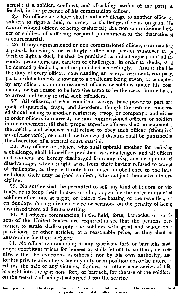 ―92― ―92―
arrest; if a soldier, confined, and of asking pardon of the party of-
fended, in the presence of his commanding officer.
25. No officer or soldier shall send a challenge to another officer or
soldier, to fight a duel, or accept a challenge, if sent, on pain, if a
commissioned officer, of being cashiered; if a non commissioned offi-
cer or soldier, of suffering corporal punishment, at the discretion of
a court martial.
26. If any commissioned or non commissioned officer, commanding
a guard, knowingly or willingly suffer any person whatever to go
forth to fight a duel, he shall be punished as a challenger; and all se-
conds, promoters, and carriers of challenges, in order to duels, shall
be deemed principals, and be punished accordingly. And it shall be
the duty of every officer, commanding an army, regiment, company,
post, or detachment, knowing to a challenge being given, or accepted,
by any officer, non commissioned officer, or soldier, under his com-
mand, or has reason to believe the same to be the case, immediately
to arrest and bring to trial such offenders.
27. All officers, of what condition soever, have power to part and
quell all quarrels, frays, and disorders, though the persons concern-
ed should belong to another regiment, troop, or company; and either
to order officers into arrest, or non commissioned officers or soldiers
into confinement, till their proper superior officers shall be acquainted
therewith; and whoever shall refuse to obey such officer (though of
an inferior rank), or shall draw his sword on him, shall be punished at
the discretion of a general court martial.
28. Any officer or soldier, who shall upbraid another for refusing
a challenge, shall himself be punished as a challenger, and all officers
and soldiers are hereby discharged from any disgrace or opinion of
disadvantage, which might arise from their having refused to accept
of challenges, as they will only have acted in obedience to the laws,
and done their duty as good soldiers, who subject themselves to dis-
cipline.
29. No suttler shall be permitted to sell any kind of liquors or vic-
tuals, or to keep their houses or shops open for the entertainment of
soldiers after nine at night, or before the beating of the reveilles, or
on Sundays during divine service or sermon, on the penalty of being
dismissed from all future suttling.
30. All officers commanding in the field, forts, barracks, or garri-
sons of the United States, are required to see that the persons per-
mitted to suttle shall supply the soldiers with good and wholesome
provisions, or other articles, at a reasonable price, as they shall be
answerable for their neglect.
31. No officer commanding in any garrison, fort, or barrack, shall
exact exorbitant prices for houses or stalls let out to suttlers, or con-
nive at the like exactions in others; nor by his own authority, and
for his private advantage, lay any duty or imposition on, or be interest-
ed in, the sale of any victuals, liquors, or other necessaries of life,
brought into the garrison, fort, or barrack, for the use of the soldiers,
on the penalty of being discharged from the service.
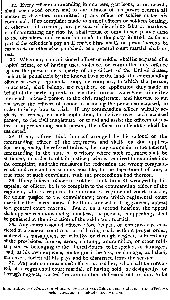 ―93― ―93―
32. Every officer commanding in quarters, garrisons, or on march,
shall keep good order, and to the utmost of his power redress all
abuses or disorders committed by any officer or soldier under his
command; if on complaint made to him of officers or soldiers beating,
or otherwise ill treating, any person, of disturbing fairs or markets,
or of committing any riot, he shall refuse or omit to see justice done
to the offenders, and reparation made to the party injured, as far as
part of the offender's pay shall enable him, shall, on proof thereof, be
cashiered, or otherwise punished, as a general court martial shall di-
rect.
33. When any commissioned officer or soldier shall be accused of a
capital crime, or of having used violence, or committed any offence
against the persons or property of any citizen of the United States,
such as is punishable by the known laws of the land, the commanding
officer of every regiment, troop, or company, to which the person,
so accused, shall belong, are required, on application duly made in
behalf of the party injured, to use their utmost endeavour to deliver
over such accused person to the civil magistrate, and likewise to aid
and assist the officers of justice in securing the person so accused, in
order to bring him to trial. If any commanding officer wilfully ne-
glect, or refuse, on such application, to deliver over such accused
person, to the civil magistrate, or to aid and assist the officers of jus-
tice in apprehending such person, the officer so offending shall be
cashiered.
34. If any officer think himself wronged by his colonel or the
commanding officer of the regiment, and shall, on due applica-
tion being made, be refused redress, he may complain to the general,
commanding in the state or territory where such regiment shall be
stationed, in order to obtain justice; who is required to examine into
the complaint, and take measures for redressing the wrong complain-
ed of, and transmit as soon as possible, to the department of war, a
true state of such complaint, with the proceedings had thereon.
35. If any inferior officer or soldier think himself wronged by his
captain, or officer, he is to complain to the commanding officer of the
regiment, who is required to summon a regimental court martial,
for doing justice to the complainant; from which regimental court
martial either party may, if he think himself still aggrieved, appeal
to a general court martial. But if, on a second hearing, the appeal
shall appear vexatious and groundless, the person, so appealing, shall
be punished at the discretion of the said court martial.
36. Any commissioned officer, store keeper, or commissary, con-
victed at a general court martial of having sold, without proper order,
embezzled, misapplied, or wilfully, or through neglect, suffered any
of the provisions, forage, arms, clothing, ammunition, or other mili-
tary stores, belonging to the United States, to be spoiled, or damaged,
shall, at his own expence, make good the loss, or damage, and shall,
moreover, forfeit all his pay, and be dismissed from the service.
37. Any non commissioned officer, or soldieir, who shall be convic-
ted, at a regimental court martial, of having sold, or designedly, or
through neglect, wasted the ammunition delivered out to him, to be
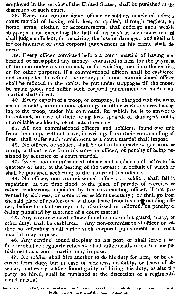 ―94― ―94―
employed in the servicer of the United States, shall be punished at the
discretion of such court.
38. Every non commissioned officer or soldier, convicted before a
court martial of having sold, lost, or spoiled, through neglect, his
horse, arms, clothes, or accoutrements, shall undergo such weekly
stoppages (not exceeding the half of his pay) as such court martial
shall judge sufficient, for repairing the loss or damage; and shall suf-
fer confinement or such corporal punishment as his crime shall de-
serve.
39. Every officer convicted before a court martial of having em-
bezzled or misapplied any money, entrusted to him for the payment
of the men under his command, or for enlisting men into the service,
or for other purposes, if a commissioned officer, shall be cashiered,
and compelled to refund the money; if a non commissioned officer,
shall be reduced to the ranks, be put under stoppages till the money
be made good, and suffer such corporal punishment as such court
martial shall direct.
40. Every captain of a troop, or company, is charged with the arms,
accoutrements, ammunition, clothing, or other warlike stores belong-
ing to the troop, under his command, for which he is to answer to
his colonel, in case of their being lost, spoiled, or damaged, not by
unavoidable accidents, or on actual service.
41. All non commissioned officers and soldiers, found one mile
from the camp, without leave, in writing, from their commanding of-
ficer, shall suffer such punishment as a court martial shall impose.
42. No officer, or soldier, shall be out of his quarters, garrison, or
camp, without leave from his superior officer, on penalty of being pu-
nished by sentence of a court martial.
43. Every non commissioned officer and soldier shall retire to his
quarters or tent, at the beating of the retreat; in default of which he
shall be punished according to the nature of his offence.
44. No officer, non commissioned officer, or soldier, shall fail in
repairing, at the time fixed, to the place of parade, of exercise, or
other rendezvous, appointed by his commanding officer, if not pre-
vented by sickness, or some other evident necessity; or shall go from
the said place of rendezvous, without leave from his commanding offi-
cer, before he shall be regularly dismissed or relieved, on penalty of
being punished by sentence of a court martial.
45. Any commissioned officer found drunk on his guard, party, or
other duty, shall be cashiered. Any non-commissioned officer or sol-
dier so offending shall suffer such corporal punishment as a court
martial may impose.
46. Any centinel found sleeping on his post, or shall leave it be-
fore he shall be regularly relieved, shall suffer death, or such other pu-
nishment as a court martial may impose.
47. No soldier shall hire another to do his duty for him, or be ex-
cused from duty, but in case of sickness, disability, or leave of ab-
sence; and every soldier found guilty of hiring his duty, as also the
party so hired, shall be punished at the discretion of a regimental
court martial.
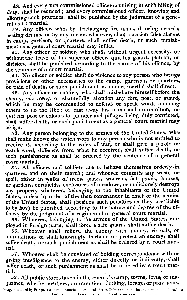 ―95― ―95―
48. And every non commissioned officer conniving at such hiring of
duty, shall be reduced; and every commissioned officer, knowing and
allowing such practices, shall be punished by the judgment of a gene-
ral court martial.
49. Any officer, who, by discharging fire arms, drawing swords,
beating drums, or by any means whatever, shall occasion false alarms
in camp, garrison, or quarters, shall suffer death, or such punish-
ment as a general court martial may inflict.
50. Any officer or soldier, who shall, without urgent necessity, or
without the leave of his superior officer, quit his guard, platoon, or
division, shall be punished according to the nature of his offence, by
the sentence of a court martial.
51. No officer or soldier shall do violence to any person who brings
provisions or other necessaries to the camp, garrison, or quarters,
on pain of death, or such punishment as a court martial shall direct.
52. Any officer or soldier, who shall misbehave himself before the
enemy, run away, or shamefully abandon any fort, post, or guard,
which he may be commanded to defend, or speak words inducing
others to do the like; or cast away his arms and ammunition, or
quit his post or colours to plunder and pillage, being duly convicted,
shall suffer death, or such punishment as a general court martial may
assign.
53. Any person belonging to the armies of the United States, who
shall make known the watch word to any person who is not entitled to
receive it, according to the rules of war, or shall give a parole or
watch word, different from what he received, shall suffer death, or
such punishment as shall be ordered by the sentence of a general
court martial.
54. All officers and soldiers are to behave themselves orderly in
quarters, and on their march; and whoever commits any waste or
spoil, either in walks of trees, parks, warrens, fish ponds, houses,
or gardens, cornfields, enclosures of meadows, or maliciously destroys
any property whatever, belonging to the inhabitants of the United
States, unless by order of the then commander in chief of the armies
of the United States, shall (besides such penalties as they are liable
to by law) be punished according to the nature and degree of the of-
fence, by the judgment of a regimental or general court martial.
55. Whoever, belonging to the armies of the United States, em-
ployed in foreign parts, shall force a safe guard, shall suffer death.
56. Whoever shall relieve the enemy with money, victuals, or
ammunition, or shall knowingly harbour or protect an enemy, shall
suffer death, or such punishment as shall be ordered by a court mar-
tial.
57. Whoever shall be convicted of holding correspondence with or
giving intelligence to the enemy, either directly or indirectly, shall
suffer death, or such punishment as shall be ordered by a court mar-
tial.
58. All public stores taken in the enemy's camp, towns, forts, or ma-
gazines, whether artillery, ammunition, clothing, forage, or provisions,
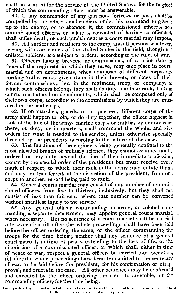 ―96― ―96―
shall be secured for the service of the United States; for the neglect
of which the commanding officer must be answerable.
59. If any commander of any garrison, fortress, or post, shall be
compelled by the officers and soldiers under his command to give it
up to the enemy, or to abandon it, the commissioned officers, non
commissioned officers, or soldiers, convicted of having so offended,
shall suffer death, or such punishment as a court martial may impose.
60. All suttlers and retainers to the camp, and all persons whatever,
serving with the armies of the United States in the field, though not
enlisted soldiers, are subject to orders, according to the rules of war.
61. Officers having brevets, or commissions, of a prior date to
those of the regiment in which they serve, may take place in courts
martial and on detachments, when composed of different corps, ac-
cording to the ranks given them in their brevets, or dates of their
former commissions; but in the regiment, troop, or company, to
which such officers belong, they shall do duty and take rank, both in
courts martial and on detachments, which shall be composed only of
their own corps, according to the commissions by which they are mus-
tered in the said corps.
62. If on marches, guards, or in quarters, different corps of the
army shall happen to join, or do duty together, the officer highest in
rank of the line of the army, marine corps, or militia, by commission
there, on duty, or in quarters, shall command the whole, and give
orders for what is needful to the service, unless otherwise specially
directed by the president, according to the nature of the case.
63. The functions of the engineers being generally confined to the
most elevated branch of military science, they cannot assume, nor be
ordered on any duty beyond the line of their immediate profession,
except by the special order of the president; but must receive every
mark of respect, to which their rank in the army may entitle them,
and may be transferred, at the discretion of the president, from one
corps to another, regard being paid to rank.
64. General courts martial may consist of any number of commis-
sioned officers, from five to thirteen, inclusively, but they shall not
consist of less than thirteen, where that number can be convened
without manifest injury to the service.
65. Any general officer commanding an army, or colonel com-
manding a separate department, may appoint general courts martial,
when necessary. But no sentence of a court martial shall be carried
into execution till after the whole proceedings shall have been laid
before the officer ordering the same, or the officer commanding the
troops for the time being; neither shall any sentence of a general
court martial, in time of peace, extending to the loss of life, or the
dismission of a commissioned officer, or which shall, either in time
of peace or war, respect a general officer, be carried into execution,
till after the whole proceedings have been transmitted to the secretary
of war, to be laid before the president, for his confirmation or disap-
proval, and orders in the case. All other sentences may be confirmed
and executed by the officer ordering the court to assemble, or the
commanding officer, for the time being.
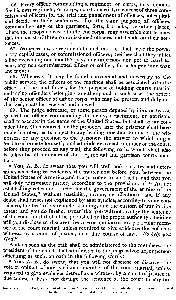 ―97― ―97―
66. Every officer commanding a regiment, or corps, may appoint,
for his own regiment, or corps, courts martial, to consist of three com-
missioned officers, for the trial and punishment of offences, not capital,
and decide on their sentences. For the same purpose, all officers,
commanding any of the garrisons, forts, barracks, or other places,
where the troops consist of different corps, may assemble courts mar-
tial, to consist of three commissioned officers, and decide on their sen-
tences.
67. No garrison, or regimental court martial shall have the power
to try capital cases, or commissioned officers; neither shall they inflict
a fine exceeding one month's pay, nor imprison, nor put to hard la-
bour, any non commissioned officer or soldier, for a longer time than
one month.
68. Whenever it may be found convenient and necessary to the
public service, the officers of the marines shall be associated with the
officers of the land forces, for the purpose of holding courts martial
and trying offenders belonging to either; and in such cases the orders
of the senior officer of either corps, who may be present and duly au-
thorized, shall be received and obeyed.
69. The judge advocate, or some person deputed by him, or by the
general or officer commanding the army, detachment, or garrison,
shall prosecute: in the name of the United States, but shall so far con-
sider himself as counsel for the prisoner, after the prisoner shall have
made his plea, as to object to any leading question to any of the wit-
nesses, or any question to the prisoner, the answer to which might
tend to criminate himself; and administer to each member of the court,
before they proceed on any trial, the following oath, which shall also
be taken by all members of the regimental and garrison courts mar-
tial:
“You, A. B., do swear that you will well and truly try and deter-
mine, according to evidence, the matter now before you, between the
United States of America and the prisoner to be tried; and that you
will duly administer justice, according to the provisions of “An act
establishing rules and articles for the government of the armies of the
United States,” without partiality, favour, or affection: and if any
doubt shall arise, not explained by said articles, according to your con-
science, the best of your understanding, and the custom of war in like
cases: and you do further swear, that you will not divulge the sentence
of the court until it shall be published by the proper authority: neither
will you disclose or discover the vote or opinion of any particular mem-
ber of the court martial, unless required to give evidence thereof as a
witness, by a court of justice, in a due course of law. So help you
God.”
And, as soon as the oath shall be administered to the members, the
president of the court shall administer to the judge advocate, or person
officiating as such, an oath in the following words:
“You, A. B., do swear, that you will not disclose or discover the
vote or opinion of any particular member of the court martial, unless
required to give evidence thereof as a witness, by a court of justice in
due course of law, nor divulge the sentence of the court to any but
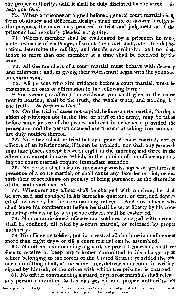 ―98― ―98―
the proper authority, until it shall be duly disclosed by the same. So
help you God.
70. When a prisoner arraigned before a general court martial shall,
from obstinacy and deliberate design, stand mute or answer foreign to
the purpose, the court may proceed to trial and judgment as if the
prisoner had regularly pleaded not guilty.
71. When a member shall be challenged by a prisoner, he must
state his cause of challenge, of which the court shall, after due delibe-
ration, determine the validity, and decide accordingly: and no chal-
lenge to more than one member at a time shall be received by the
court.
72. All the members of a court martial must behave with decency
and calmness; and, in giving their votes, must begin with the youngest
in commission.
73. All persons who give evidence before a court martial, must be
examined on oath or affirmation in the following form:
“You swear (or affirm) the evidence you shall give in the cause
now in hearing, shall be the truth, the whole truth, and nothing but
the truth. So help, you God.”
74. On the trial of cases not capital, before courts martial, the depo-
sition of witnesses not in the line or staff of the army, may be taken
before some justice of the peace, and read in evidence: provided the
prosecutor and the person accused are present at taking the same, or
are duly notified thereof.
75. No officer shall be tried but by a general court martial, nor by
officers of an inferior rank, if it can be avoided: nor shall any proceed-
ings take place, except between eight in the morning and three in the
afternoon, except in cases which, in the opinion of the officer appoint-
ing the court martial, require immediate attention.
76. No person shall use any menacing words, signs, or gestures, in
presence of a court martial, or shall cause any disorder or riot, or dis-
turb their proceedings, on penalty of being punished, at the discretion
of the said court martial.
77. Whenever any officer shall be charged with a crime, he shall
be arrested and confined in his barracks, quarters, or tent, and depriv-
ed of his sword, by the commanding officer. And any officer who
shall leave his confinement before he shall be set at liberty by his com-
manding officer, or by a superior officer, shall be cashiered.
78. Non commissioned officers and soldiers, charged with crimes,
shall be confined, till tried by a court martial, or released by proper
authority.
79 No officer or soldier, put in arrest, shall continue in confinement
more than eight days, or till a court martial can be assembled.
80. No officer commanding a guard, or provost marshal, shall re-
fuse to receive or keep any prisoner committed to his charge by an
officer belonging to the forces of the United States; provided the offi-
cer committing shall, at the same time, deliver an account in writing,
signed by himself, of the crime with which the prisoner is charged.
81. No officer commanding a guard, or provost marshal, shall release
any person committed to his charge, without proper authority, nor
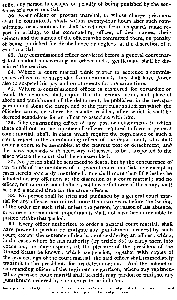 ―99― ―99―
suffer any person to escape, on penalty of being punished by the sen-
tence of a court martial.
82. Every officer or provost marshal, to whose charge prisoners
shall be committed, shall, within twenty-four hours after such com-
mitment, or as soon as he shall be relieved from his guard, make re-
port in writing, to the commanding officer, of their names, their
crimes, and the names of the officers who committed them, on penalty
of being punished for disobedience or neglect, at the discretion of a
court martial.
83. Any commissioned officer convicted before a general court mar-
tial of conduct unbecoming an officer and a gentleman, shall be dis-
missed the service.
84. Where a court martial think proper to sentence a commis-
sioned officer to be suspended from command, they shall have power
also to suspend his pay and emoluments for the same time.
85. Where a commissioned officer is cashiered for cowardice or
fraud, the sentence shall enjoin that the crime, name, and place of
abode and punishment of the delinquent, be published in the newspa-
pers in and about the camp, and of the particular state from which the
offender came, or where he usually resides, after which it shall be
deemed scandalous for an officer to associate with him.
86. The commanding officer of any post or detachment, in which
there shall not be the number of officers required to form a general
court martial, shall, in cases which require the cognizance of such a
court, report to the commanding officer of the department, who shall
order a court to be assembled at the nearest post or detachment, and
the party accused, with necessary witnesses, to be transported to the
place where the court shall be so assembled.
87. No person shall be sentenced to death, but by the concurrence of
two thirds of the members of a general court martial, nor except in
cases herein expressly mentioned; nor shall more than fifty lashes be
inflicted on any offender, at the discretion of a court martial; and no
officer, non commissioned officer, soldier, or follower of the army, shall
be tried a second time for the same offence.
88. No person shall be tried and punished by a general court mar-
tial for any offence committed more than two years before the issuing
of the order for such trial, unless the person, by reason of his absence,
or some other manifest impediment, shall not have been amenable to
justice within that period.
89. Every officer authorized to order a general court martial, shall
have power to pardon or mitigate any punishment ordered by such
court, except the sentence of death, or of cashiering an officer; which,
in the cases where he has authority (by article 65) to carry them into
execution, he may suspend, till the pleasure of the president of the
United States be known; which suspension, together with copies of
the proceedings of the court martial, the said officer shall immediately
transmit to the president, for his determination. And the colonel or
commanding officer of the regiment or garrison, where any regimen-
tal or garrison court martial shall be held, may pardon or mitigate any
punishment ordered by such court to be inflicted.
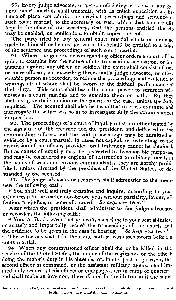 ―100― ―100―
90. Every judge advocate, or person officiating as such, at any ge-
neral court martial, shall transmit, with as much expedition as dis-
tance of place can admit, the original proceedings and sentence of
such court martial, to the secretary of war, which shall be carefully
kept in the office of the secretary, that the persons entitled thereto
may be enabled, on application, to obtain copies thereof.
The party tried by any general court martial shall, on demand
made by himself or by any person in his behalf, be entitled to a copy
of the sentence and proceedings of such court martial.
91. Where the general or commanding officer orders a court of in-
quiry to examine into the nature of any transaction, accusation, or im-
putation against any officer or soldier, the court shall consist of one
or more officers, not exceeding three, and a judge advocate, or other
suitable person as recorder, to reduce the proceedings and evidence to
writing, all of whom shall be sworn to the faithful performance of
their duty. This court shall have the same power to summon wit-
nesses as a court martial, and to examine them on oath. But they
shall not give their opinion on the merits of the case, unless specially
required. The accused shall also be permitted to cross examine and
interrogate the witnesses, so as to investigate fully the circumstances
in question.
92. The proceedings of a court of inquiry must be authenticated by
the signature of the recorder and the president, and delivered to the
commanding officer: and the said proceedings may be admitted as
evidence by a court martial, in cases not capital, or extending to the
dismission of an officer, provided oral testimony cannot be obtained.
But as courts of enquiry may be perverted to dishonorable purposes,
and may be considered as engines of destruction to military merit, in
the hands of weak and envious commandants, they are hereby prohi-
bited, unless directed by the president of the United States, or de-
manded by the accused.
93. The judge advocate, or recorder, shall administer to the mem-
bers the following oath:
“You shall well and truly examine and inquire, according to your
evidence, into the matter now before you, without partiality, favour, af-
fection, prejudice, or hope of reward. So help, you God.”
After which the president shall administer to the judge advocate,
or recorder, the following oath:
“You, A. B., do swear that you will, according to your best abilities,
accurately and impartially record the proceedings of the court, and
the evidence to be given in the case in hearing. So help you God.”
The witnesses shall take the same oath as witnesses sworn before a
court martial.
94. When any commissioned officer shall die or be killed in the
service of the United States, the major of the regiment, or the officer
doing the major's duty in his absence, or, in any post or garrison, the
second officer in command, or the assistant military agent, shall im-
mediately secure all his effects or equipage, then in camp or quarters,
and shall make an inventory thereof, and forthwith transmit the same
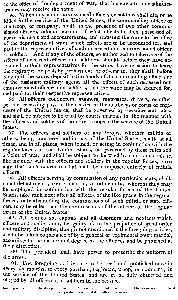 ―101― ―101―
to the office of the department of war, that his executors or adminis-
trators may receive the same.
95. When any non commissioned officer, or soldier, shall die, or be
killed in the service of the United States, the commanding officer of
the troop, or company, shall, in the presence of two other commis-
sioned officers, take an account of what effects he died possessed of,
above his arms and accoutrements, and transmit the same to the office
of the department of war; which effects are to be accounted for, and
paid to the representatives of such deceased non commissioned officer
or soldier. And if any of the officers, so authorized to take care of the
effects of deceased officers and soldiers, should, before they have ac-
counted to their representatives for the same, have occasion to leave
the regiment, or post, by preferment, or otherwise, they shall, before
they quit the same, deposit in the hands of the commanding officer, or
of the assistant military agent, all the effects of such deceased non
commissioned officers and soldiers, that the same may be secured for,
and paid to, their respective representatives.
96. All officers, conducters, gunners, matrosses, drivers, or other
persons receiving pay, in the service of the artillery, or corps of engi-
neers of the United States, shall be governed by the aforesaid rules,
and shall be subject to be tried by courts martial, in like manner with
the officers and soldiers of the other troops in the service of the United
States.
97. The officers and soldiers of any troops, whether militia or
others, being mustered and in pay of the United States, shall, at all
times, and in all places, when joined, or acting in conjunction with the
regular forces of the United States, be governed by these rules and
articles of war, and shall be subject to be tried by courts martial, in
like manner with the officers and soldiers in the regular forces, save
only that such courts martial shall be composed entirely of militia
officers.
98. All officers serving by commission of any particular state, shall,
on all detachments, courts martial, or other duty, wherein they may
be employed in conjunction with the regular forces of the United
States, take rank next after all officers of the like grade in the regular
forces, notwithstanding the commissions of such militia or state offi-
cers may be elder than the commissions of the officers of the regular
forces of the United States.
99. All crimes not capital, and all disorders and neglects which
officers and soldiers may be guilty of, to the prejudice of good order
and military discipline, though not mentioned in the foregoing articles,
are to be taken cognizance of by a general or regimental court martial,
according to the nature and degree of the offence, and be punished at
their discretion.
100. The president shall have power to prescribe the uniform of
the army.
101. The foregoing articles are to be read and published once in
every six months, to every garrison, regiment, troop, or company, in
the service of the United States, and are to be duly observed and
obeyed by all officers and soldiers in the service.
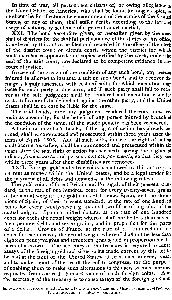 ―102― ―102―
In time of war, all persons not citizens of, or owing allegiance to
the United States of America, who shall be found lurking as spies, in
or about the fortifications or encampments of the armies of the United
States, or any bf them, shall suffer death, according to the law and
usage of nations, by sentence of a general court martial.
XXI. The bond heretofore given, or hereafter given by the mar-
shal of districts for the faithful performance of the duties of his office,
is ordered by this act to be filed and recorded in the office of the clerk
of the district court or circuit court, within the district for which
such marshal is appointed, and copies certified by the clerk, under the
seal of the said court, are declared to be competent evidence in any
court of justice.
In case of the breach of the condition of any such bond, any person
injured is allowed to institute a suit on such bond, and to recover da-
mages, legally assessed, with costs of suit; for which execution may
issue for such party in due form, and if such party shall fail to reco-
ver in the suit, judgment shall be rendered and execution issue for
costs in favour of the defendant against the other party, and the United
States shall in no case be liable for the same.
The said bonds, after any judgment rendered thereon, must re-
main as a security, for the benefit of any person injured by breach of
the condition of the same, till the whole penalty has been recovered.
All suits on marshal's bonds, if the right of action has already ac-
crued, shall be commenced and prosecuted within three years after the
tenth of April, 1806. And all such suits, in case the right of action
shall accrue hereafter, shall be commenced and prosecuted within six
years after the said right of action has accrued; saving the rights of
infants, feme coverts, and persons non compos mentis, so that they sue
within three years after their disabilities are removed.
XXII. Foreign gold and silver coins are allowed by this act to pass
current as money within the United States, and be a legal tender for
the payment of all debts and demands, at the following rates:
The gold coins of Great Britain and Portugal, of their present stan-
dard, at the rate of one hundred cents for every twenty-seven grains
of the actual weight; the gold coins of France, Spain, and the domi-
nions of Spain, of their present standard, at the rate of one hundred
cents for every twenty-seven grains and two-fifths of a grain, of the
actual weight. Spanish milled dollars, at the rate of one hundred
cents for each, the actual weight whereof shall not be less than seven-
teen penny weights and seven grains, and in proportion for the parts
of a dollar. Crowns of France at the rate of one hundred and ten
cents for each crown, the actual weight whereof shall not be less than
eighteen pennyweights and seventeen grains, and in proportion for the
parts of a crown. The secretary of the treasury is required to cause
assays of the foreign gold and silver coins made current by this act to
be had at the mint of the United States, at least once in every year,
and to make report of the result thereof to congress, for the purpose
of enabling them to make such alterations in this act, as may become
requisite, from the real standard value of such foreign coins. And
the secretary of the treasury is to cause assays of the foreign gold and
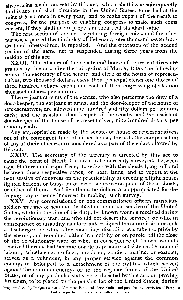 ―103― ―103―
silver coins made current by this act, which shall issue subsequently
to this act, and shall circulate in the United States, to be had at the
mint at least once in every year, and to make report of the result to
congress, for the purpose of enabling congress to make such coins
current, if they shall deem proper, at their real standard value.
The first section of the act regulating foreign coins, and for other
purposes, passed the ninth day of February, one thousand seven hun-
dred and ninety-three, is repealed. And the operation of the second
section of the same act is suspended during three years from the
making of this act;
XXIII. The officers of the senate and house of representatives are
granted by this act, after the thirty-first of March, 1806, the following
sums: the secretary of the senate, and clerk of the house of represen-
tatives, two thousand dollars, each, their principal clerks one thousand
three hundred dollars, each; and each of their engrossing clerks one
thousand dollars, per annum.
The serjeant at arms of the senate, who also performs the duty of a
door-keeper, the serjeant at arms, and the door-keeper of the house of
representatives, are allowed nine hundred and fifty dollars per annum,
each; and the assistant door-keeper of the senate, and the assistant
door-keeper of the house of representatives, nine hundred dollars per
annum, each.
Any appropriation made by the senate, or house of representatives,
out of the contingent fund of either house, towards the compensation
of any of their officers, are considered as a part of the salary allowed by
this act.
XXIV. The secretary of the treasury is directed by this act to
cause the coast of North Carolina to be correctly surveyed, between
cape Hatteras and cape Fear; together with the shoals lying off and
between these respective capes, or head lands, and to report at the
next session of congress on the practicability of erecting a light house,
lighted beacon, or buoy, on or near the extreme point of these shoals,
or either of them. And five thousand dollars are appropriated for de-
fraying any expence incurred in making such survey.
XXV. Any commissioned or non commissioned officer, musician,
soldier, marine, or seaman, disabled in the actual service of the United
States, while in the line of his duty, by known wounds received during
the revolutionary war, and who did not desert the service; or who, in
consequence of disability as aforesaid, resigned his commission or took
a discharge; or who, after incurring disability was taken captive by
the enemy, and remained either in captivity or on parole, till the close
of the revolutionary war; or who, in consequence of known wounds
received therein, had become unable to procure subsistence by manual
labour; whether such officer, musician, soldier, marine, or seaman,
served as a volunteer, in any proper service against the common
enemy, or belonged to a detachment of the militia, which served
against the common enemy, or to the regular forces of the United
States, or of any particular state, he is directed by this act, on proving
his claim, to be placed on the pension list of the United States, during
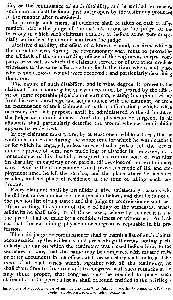 ―104― ―104―
life, or the continuance of such disability, and is entitled to receive
such sum as shall be found just and proper, by the testimony produced
in the manner after mentioned.
In proving such claim, all evidence shall be taken on oath or affir-
mation, before the judge of the district, or one of the judges of the
territory in which such claimant resides, or before some person spe-
cially authorized by commission from the judge.
Decisive disability, the effect of a known wound, received while in
the actual service, during the revolutionary war, must be proved by
the affidavit of the commanding officer of the regiment, corps, com-
pany, or vessel, in which the claimant served; or of two other credible
witnesses to the same effect, setting forth the time when, and place
where, such known wound were received; and particularly describing
the same.
The nature of such disability, and in what degree it prevents the
claimant from obtaining his subsistence, must be proved by the affida-
vit of some reputable physician or surgeon, stating his opinion either
from his own knowledge and acquaintance with the claimant, or from
an examination of such claimant on oath or affirmation; which, when
necessary for that purpose, shall be administered to the claimant by
the judge or commissioner. And the physician or surgeon, in his
affidavit, shall particularly describe the wound whence the disability
appears to be derived.
Every claimant must prove, by at least one credible witness, that he
continued in service during the whole time for which he was detached,
or for which he engaged, unless he was discharged, or left the service
in consequence of some new modelling or disorder in the army, or in
consequence of his disability resigned his commission; or was after
his disability in captivity or on parole, till the close of the revolutionary
war. And in the same manner must prove his mode of life and em-
ployment since he left the service, and the place where he has since
resided, and his place of residence at the time of taking such tes-
timony.
Every claimant shall by his affidavit give satisfactory reasons why
he did not make application for a pension before, and that he is not on
the pension list of any state; and the judge or commissioner shall cer-
tify in writing, his opinion of the credibility of the witnesses, whose
affidavits he shall take, in all those cases, where by this act it is said
the proof shall be made by a credible witness or witnesses. And, al-
so, that the examining physician or surgeon is reputable in his pro-
fession.
The said judge or commissioner shall transmit a list of such claims,
accompanied by the evidence, and proceedings thereon, noting parti-
cularly the day on which the testimony was closed before him, to the
secretary at war, that the same may be compared with muster rolls,
or other documents in his office: and the secretary shall make a state-
ment of all such cases, which, together with all the testimony, he
shall from time to time transmit to congress, with such remarks as he
may think proper, that congress may be enabled to place such
claimants on the pension list as shall be found entitled to the privilege.
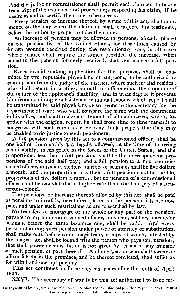 ―105― ―105―
And the judge or commissioner shall permit each claimant to take a
transcript of the evidence and proceedings respecting his claim, if he
desire it, and to certify the same to be correct.
Every pension, or increase thereof, by virtue of this act, shall com-
mence on the day when the claimant shall complete his testimony,
before the authority proper to take the same.
An increase of pension may be allowed to persons, already placed
on the pension list of the United States, for disabilities caused by
known wounds received during the revolutionary war, in all cases
where justice shall require the same: provided the increase, when
added to the pension formerly received, shall not exceed a full pen-
sion.
Every invalid making application for this purpose, shall be exa-
mined by two reputable physicians or surgeons, to be authorized by
commission from the judge of the district, where such invalid resides;
who shall report in writing, on oath or affirmation, their opinion of
the nature of the applicant's disability, and in what degree it prevents
him from obtaining a subsistence by manual labour, which report shall
be transmitted by said physicians or surgeons to the secretary for the
department of war; who shall compare the same with the documents
in his office, and shall make a statement of all such cases, which, to-
gether with the original report, he shall from time to time transmit to
congress, with such remarks as he may think proper, that they may
be enabled to do justice to such pensioners.
A full pension given by this act to a commissioned officer, shall be
one half of the monthly pay legally allowed, at the time of incurring
his disability, to his grade in the forces of the United States; and the
proportions, less than a full pension, shall be the correspondent pro-
portions of the said half pay; and a full pension to a non commis-
sioned officer, musician, soldier, marine, or seaman, shall be five dollars
a month, and the proportions less than a full pension shall be the like
proportions of five dollars a month; but no pension of a commissioned
officer shall be calculated at a higher rate than the half pay of a lieu-
tenant-colonel.
The pensions, or increase thereof, allowed by this act, shall be paid
as pensions to invalids, heretofore placed on the pension list, are now
paid, and under such restrictions as are prescribed by law.
No transfer, or mortgage of the whole or any part of the pension,
payable to any non commissioned officer, musician, soldier, marine, or
seaman, before the same becomes due, shall be valid. And every
person claiming such pension under power of attorney or substitution,
shall make oath before some magistrate, a copy of which, attested by
the magistrate, shall be lodged with the person who pays said pension;
that such power or substitution is not given by reason of any transfer
of such pension, or part thereof. And any person who shall swear or
affirm falsely in the premises, and be thereof convicted, shall suffer as
for wilful and corrupt perjury.
This act continues in force only six years after the tenth of April
1806.
XXVI. The secretary of war is by this act authorized to issue mi-
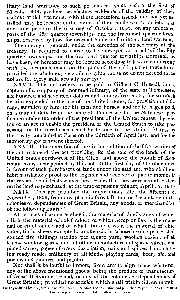 ―106― ―106―
litary land warrants, to such persons as shall, before the first of
March, 1808, produce satisfactory evidence of the validity of their
claims: which warrants, with those heretofore issued, and not yet sa-
tisfied, may be located in the names of their holders or proprietors, at
any time prior to the first day of October, 1808, on any unlocated
parts of the fifty quarter townships, and the fractional quarter town-
ships, reserved by law, for original holders of military land warrants.
The surveyor general, under the direction of the secretary of the
treasury, is required to cause to be surveyed so much of the fifty
quarter townships, and the fractional quarter townships aforesaid, as
have been, or hereafter may be located according to law, in conformity
with the locations made on the plats of the said quarter townships;
provided the whole expence of surveying the same do not exceed three
dollars for every mile actually surveyed.
XXVII. This act orders to be paid to Gilbert C. Russell, late a
captain of a company of mounted infantry, of the state of Tennessee,
six hundred and seventeen dollars and ninety-five cents, for so much
by him expended to the use of the United States, for provision and fo-
rage, supplied by him, for his men and horses, and for ferriages paid,
on a tour of duty from the state of Tennessee to the Natchez; per-
formed under the order of the president of the United States, by vir-
tue of an act to enable the president of the United States to take pos-
session of the territories ceded by France to the United States, by
the treaty concluded at Paris on the thirtieth of April last, and for the
temporary government thereof.
XXVIII. The operation of the sixth condition of the fifth section of
the act to amend the act providing for the sale of the lands of the
United States north-west of the Ohio, and above the mouth of Ken-
tucky river, is suspended by this act till the first day of October next,
in favour of such purchasers of lands under the said act, who shall ex-
hibit satisfactory proof to the register and receiver of public monies in
the respective districts where they reside, that they were actual settlers
on the land so purchased, at the time of passing this act, April 15, 1806.
XXIX. This act prohibits the importation, after the fifteenth of
November, 1806, from any place in Great Britain or Ireland, or in the
colonies or dependencies of Great Britain, any goods, or merchandize,
of the following kinds:
All articles of which leather is the material of chief value: of which
silk is the material of chief value: of which hemp or flax is the mate-
rial of chief value: and of which tin or brass is the material of chief
value, tin in sheets excepted: woollen cloths whose invoice prices shall
exceed five shillings sterling per square yard, woollen hosiery of all
kinds, window glass, and all other manufactures of glass, silver, and
plated wares, paper of every description, nails and spikes, hats, cloth-
ing ready made, millinery of all kinds, playing cards, beer, ale, and
porter, and pictures and prints:
Nor shall it be lawful to import, from any foreign place whatever,
any of the above mentioned goods, being the produce or manufacture
of Great Britain or Ireland, or any of the colonies or dependencies of
Great Britain; provided no articles which shall within fifteen months
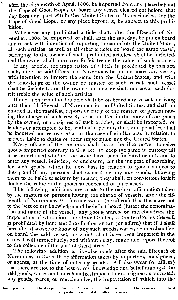 ―107― ―107―
after the eighteenth of April, l806, be imported trom any place beyond
the Cape of Good Hope, on board any vessel cleared out before that
day from any port within the United States or its territories, for the
Cape of Good Hope, or any place beyond it, be subject to this prohi-
bition.
Whenever any prohibited article shall, after the fifteenth of No-
vember, 1806, be imported, or shall, after the said day, be put on board
any vessel, with intention of importing the same into the United States,
all such articles, as well as all other articles on board the same vessel,
belonging to the owner of such prohibited articles, shall be forfeited,
and the owner shall moreover forfeit treble the value of such articles.
If any article, the importation of which is prohibited by this act,
shall, after the said fifteenth of November, be put on board any vessel,
with intention to import the same into the United States, and with
the knowledge of the owner or master of such vessel, such vessel
shall be forfeited, and the owner and master shall moreover each for-
feit treble the value of such articles.
If any such prohibited article shall be on board any vessel, arriving
after the said fifteenth of November in the United States, and shall be
omitted in the manifest, report, or entry of the master, or person hav-
ing the charge of such vessel, or be omitted in the entry of the goods
by the owner, or consignee of such articles, or shall be imported, or
landed, or attempted to be, without a permit, the same penalties shall
be incurred and recovered as in the case of similar acts in relation to
articles liable to duties on their importation into the United States.
Every officer of the customs shall have the like power to seize
goods, imported contrary to this act, to keep the same in custody till
it be ascertained whether the same have been forfeited or not, and to
enter any vessel, building, or enclosure, for the purpose of searching
for such goods, which he now has, in relation to goods subject to
duty; and if any persons shall conceal or buy any goods, knowing
them to be liable to seizure by this act, they shall, on conviction, forfeit
double the value of the goods so concealed or purchased.
The following additions are made to the oath or affirmation taken
by the masters or persons having the charge of vessels, after the fif-
teenth of November, “I further swear (or affirm) that there are not
to the best of my knowledge and belief on board [insert the denomina-
tion and name of the vessel] any goods, wares, or merchandize, the
importation of which into the United States, or the territories thereof,
is prohibited by law: and I do further swear (or affirm) that if I shall
hereafter discover or know of any such goods, wares, or merchandize
on board the said vessel, or which shall have been imported in the
same, I will immediately, and without delay, make due report thereof
to the collector of the port of this district.”
The following addition is likewise made after the said fifteenth of
November, to the oath or affirmation taken by importers, consignees,
or agents, at the time of entering goods. “I also swear (or affirm)
that there are not to the best of my knowledge and belief amongst the
said goods, wares, and merchandize, imported or consigned as aforesaid,
any goods, wares, or merchandize, the importation of which into the
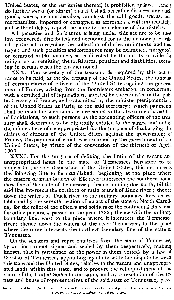 ―108― ―108―
United States, or the territories thereof, is prohibited by law. And I
do further swear (or affirm) that if I shall hereafter discover any such
goods, wares, or merchandize, amongst the said goods, wares, and
merchandize, imported or consigned as aforesaid, I will immediately,
and without delay, report the same to the collector of this district.
All penalties and forfeitures arising under this act are to be sued
for, recovered, distributed, and accounted for in the manner prescrib-
ed by the act to regulate the collection of duties on imports and ton-
nage: and such penalties and forfeitures may be examined, mitigated,
or remitted in like manner, as is directed by the act to provide for
mitigating or remitting the forfeitures, penalties and disabilities, accru-
ing in certain cases therein mentioned.
XXX. The secretary of the treasury is required by this act to
cause to be paid, at the the treasury of the United States, the amount
of certain claims of citizens of the United States against the govern-
ment of France, arising from the Bourdeaux embargo, in conformity
with a certified list of liquidations, attested by the minister of the pub-
lic treasury of France, and transmitted by the minister plenipotentiary
of the United States at Paris, to the said secretary; which payments
shall be made for such sums as are stated in the above mentioned list
of liquidations, to such persons as the accounting officers of the trea-
sury shall determine to be rightfully entitled to the same, and out of
the monies heretofore appropriated for the purpose of discharging the
claims of citizens of the United States against the government of
France, the payment of which was assumed by the government of the
United States, by virtue of the convention of the thirtieth of April,
1803.
XXXI. For the purpose of defining the limits of the vacant and
unappropriated lands in the state of Tennessee, hereafter to be
subject to the sole disposition of the United States, this act directs
the following line to be established: beginning at the place where
the eastern or main branch of Elk river intersects the southern boun-
dary line of the state of Tennessee; thence running due north, till the
said line intersects the northern or main branch of Duck river; thence
down the waters of Duck river to the military boundary line, as es-
tablished by the seventh section of an act of the state of North Caroli-
na, for the relief of the officers and soldiers of the continental line, and
for other purposes, passed in the year 1783; thence with the military
boundary line, west to the place where it intersects the Tennessee
river; thence down the waters of the river Tennessee, to the place
where the same intersects the northern boundary line of the state of
Tennessee.
On the senators and representatives from the state of Tennessee,
by an instrument signed and sealed by them respectively, making
known, that in pursuance of the power in them vested, by a law of
the state of Tennessee, appointing agents to settle the dispute between
this state and the United States, relative to the vacant and unappropri-
ated lands within this state, and to procure the relinquishment of the
claim of the United States to the same, and by a resolution of the se-
nate and house of representatives of the said state of Tennessee, pass-
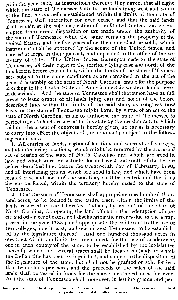 ―109― ―109―
ed in the year 1802, as instructions therein; they agree, that all right
which the state of Tennessee hath to the lands lying west and south-
of the line, herein before established within the limits of the state of
Tennessee, shall thereafter for ever cease; and that the said lands
shall remain at the sole disposition of the United States, and be ex-
empted from every disposition or tax made under the authority of
the state of Tennessee while the same remains the property of the
United States, and for five years after the same shall be sold; which
instrument shall be approved by the senate of the United State's, and
entered at large in their journal, and deposited in the office of the se-
cretary of state. The United States thereupon cede to the state of
Tennessee, all their right to the territory lying east and north of the
line herein before established, within the limits of the state of Tennes-
see, subject to the same conditions as are contained in the act of the
general assembly of the state of North Carolina, made for the purpose
of ceding to the United States of America certain western lands there-
in described. And the state of Tennessee shall thereupon have as full
power to issue grants of all lands lying east and north of the before
described line, within the limits of the said state, as congress now
have, or the state of Tennessee might have, by virtue of an act of the
state of North Carolina, made to authorise the state of Tennessee to
perfect titles to lands reserved to this state by the cession act, to which
said act the assent of congress is hereby given, so far as is necessary
to carry into effect the objects of this compact; subject to the follow-
ing conditions:
1. All entries of lands, rights of location, and warrants of surveys,
and all interfering locations, which might be removed by the aforesaid
act of cession of the state of North Carolina, and which are good in
law, and which were not actually located west and south of the herein
before described line, before the twenty-fifth day of February, 1790,
and all interfering grants which are good in law, and which have been
located east and north of the said line, shall be located, and the titles
thereto perfected, within the territory hereby ceded to the state of
Tennessee.
2. That the state of Tennessee shall appropriate one hundred thou-
sand acres, to be located in one entire tract, within the limits of the
lands reserved to the Cherokee Indians, by an act of the state of
North Carolina, for opening the land office for the redemption of spe-
cie and other certificates, and discharging the arrears due to the army,
passed in the year 1783; and appropriate the said tract to the use of
two colleges, one in east, and one in west Tennessee, to be establish-
ed by the legislature thereof. And one hundred thousand acres in
one tract within the limits last mentioned, for the use of academies;
one in each county of the state, to be established by the legislature
thereof; which said several tracts shall be located on lands to which
the Indian title has been extinguished, and subject to the disposition of
the legislature of the state, but shall not be granted or sold for less
than two dollars per acre, and the proceeds of the sales of the said
lands shall be vested in funds for the above mentioned uses for ever.
And the state of Tennessee shall moreover, in issuing grants and per-
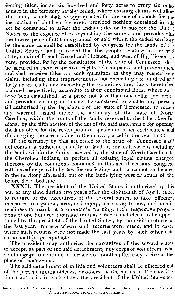 ―110― ―110―
fecting titles, locate six hundred and forty acres to every six miles
square in the territory hereby ceded, where existing claims will allow
the same, which shall be appropriated for the use of schools for the
instruction of children for ever: provided nothing; contained in this
act be construed to affect the Indian title, or to subject the United
States to the expence of extinguishing the same: and provided also
the lowest price of all lands granted or sold within the ceded territory
be the same as shall be established by congress for the lands of the
United States: and provided that the people residing in the said
state, south of French Broad and Holston, and west of Big Pigeon ri-
vers, provided for by the constitution of the state of Tennessee, shall
be secured in their respective rights of occupancy and pre-emption,
and shall receive titles for such quantities as they may respectively
claim, including their improvements, not exceeding six hundred and
forty acres each, nor exceeding the quantities they have heretofore
claimed respectively, according to their conditional lines, where such
have been established, at a price not less than one dollar per acre:
and provided nothing in this act be construed to enable any person,
till authorised by the legislature of the state of Tennessee, to locate
any warrant issued under the authority of the state of North
Carolina, within the limits of the lands reserved to the Cherokee In-
dians, by the fifth section of the act of the said state, made for opening
the land office for the redemption of specie and other certificates, and
discharging the arrears due to the army, passed in the year 1783.
If the territory by this act ceded to the state of Tennessee shall
not contain a sufficient quantity of land fit for cultivation, including
the lands within the limits reserved by the state of North Carolina to
the Cherokee Indians, to perfect all existing legal claims charged
thereon, by the conditions contained in this act of cession, congress
will hereafter provide by law for perfecting such as cannot be located
in the territory aforesaid, out of the lands lying west or south of the
before described line.
XXXII. The president of the United States is authorized by this
act, at any time during two years alter the eighteenth of April, 1806,
to require of the executives of the several states, to take effectual
measures to organize, arm, and equip, according to law, and hold in
readiness to march at a moment's warning, their respective propor-
tions of one hundred thousand militia, officers included: to be appor-
tioned by the president of the United States, by the militia returns of
the last year, in cases where such returns were made, and in cases
where such returns were not made the last year, by such other data
as he shall judge equitable.
The president may authorize the executives of the several states
to accept, as part of the said detachment, any corps of volunteers, who
shall engage to continue in service six months after they arrive at the
place of rendezvous.
The said detachment of militia and volunteers shall be officered out
of the present militia officers, or others, at the option of the constitu-
tional authority in each state; the president of the United States ap-
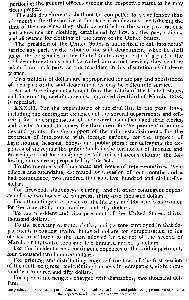 ―111― ―111―
portioning the general officers among the respective states as he may
deem proper.
The said detachments shall not be compelled to serve longer than
six months after they arrive at the place of rendezvous: and, during the
time of their service, they shall be entitled to the same pay, rations,
and allowance for clothing, established by law, as the pay, rations,
and allowance for clothing of the army of the United States.
The president of the United States is authorized to call into actual
service any part, or the whole of the said detachment, when he shall
judge the exigencies of the United States require it; if a part of the
said detachment only shall be called into actual service, they shall be
taken from such part, as the president in his discretion shall deem
proper.
Two millions of dollars are appropriated for the pay and subsistence
of such part of the said detachment as may be called into service.
An act directing a detachment from the militia of the United States,
and for erecting certain arsenals, approved the third of March, 1803,
is repealed.
XXXIII. For the expenditure of the civil list, in the year 1806,
including the contingent expences of the several departments and offi-
cers; for the compensation of the several loan offices and their clerks,
and for books and stationary for the same; for the payment of annui-
ties and grants; for the support of the mint establishment; for the
expences of intercourse, with foreign nations; for the support of
light houses, beacons, buoys, and public piers; for defraying the ex-
pences of surveying the public lands in the territories of Indiana and
Missisippi; and for satisfying certain miscellaneous claims; the fol-
lowing sums are appropriated by this act:
To the members of the senate and house of representatives, their
officers and attendants, estimated for a session of four months and a
half continuance, two hundred thousand five hundred and eighty-five
dollars.
For firewood, stationary, printing, and all other contingent expen-
ces of the two houses of congress, thirty-two thousand dollars.
For all contingent expences of the library, and librarian's allowance
for the year 1806, four hundred and fifty dollars.
To the president and vice president of the United States, thirty
thousand dollars.
To the secretary of state, clerks, and persons employed in that de-
partment, including twelve hundred dollars for compensation to his
clerks, in addition to the sum allowed by the act of the second of
March, 1799, twelve thousand five hundred and sixty dollars.
For the incidental and contingent expences of the said department,
four thousand two hundred dollars.
For printing and distributing copies of the laws of the first session
of the ninth congress, and printing the laws in newspapers, eight thou-
sand two hundred and fifty dollars.
For special messengers charged with dispatches, two thousand dol-
lars.
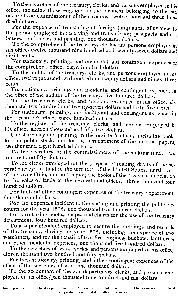 ―112― ―112―
To the secretary of the treasury, clerks, and persons employed in his
office, including those engaged on the business belonging to the late
office of the commissioner of the revenue, twelve thousand three hun-
dred dollars.
For the expence of translating of foreign languages, allowance to
the person employed in receiving and transmitting passports and sea
letters, stationary, and printing, one thousand dollars.
To the comptroller of the treasury, clerks, and persons employed in
his office, twelve thousand nine hundred and seventy-seven dollars and
eight cents.
For stationary, printing, and incidental and contingent expences of
the comptroller's office, eight hundred dollars.
To the auditor of the treasury, clerks, and persons employed in his
office, twelve thousand two hundred and twenty dollars and ninety-three
cents.
For stationary, printing, and incidental and contingent expences in
the office of the auditor of the treasury, five hundred dollars.
To the treasurer, clerks, and persons employed in his office, six
thousand two hundred and twenty-seven dollars and forty-five cents.
For stationary, printing, and incidental and contingent expences in
the treasurer's office, three hundred dollars.
To the register of the treasury, clerks, and persons employed in
his office, sixteen thousand and fifty-two dollars.
For stationary and printing in the register's office, including books
for the public stock, and for the arrangement of the marine papers,
two thousand eight hundred dollars.
To the secretary of the commissioners of the sinking fund, two
hundred and fifty dollars.
To the clerks employed for the purpose of making drafts of the se
veral surveys of land in the territory of the United States, north-west
of the river Ohio, and in keeping the books of the treasury in relation
to the sales of lands at the several land offices, three thousand four
hundred dollars.
For fuel and other contingent expences of the treasury department,
four thousand dollars.
For the expences incident to the stating and printing the public ac-
counts for the year 1806, one thousand two hundred dollars.
For purchasing books, maps, and charts for the use of the treasury
department, four hundred dollars.
To a superintendent employed to secure the buildings and records
of the treasury, during the year 1806, including the expence of two
watchmen, and for the repair of two fire engines, buckets, lanthorns,
and other incidental expences, one thousand five hundred dollars.
To the secretary of war, clerks, and persons employed in his office,
eleven thousand two hundred and fifty dollars.
For fuel, stationary, printing, and other contingent expences of the
office of the secretary of war, one thousand dollars.
To the accountant of the war department, clerks, and persons em-
ployed in his office, ten thousand nine hundred and ten dollars.
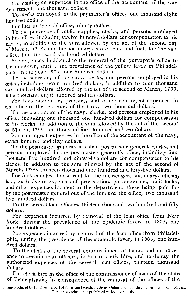 ―113― ―113―
For contingent expences in the office of the accountant of the war
department, one thousand dollars.
To clerks employed in the paymaster's office, one thousand eight
hundred dollars.
For fuel in the said office, ninety dollars.
To the purveyor of public supplies, clerks, and persons employed
in his office, including twelve hundred dollars for compensation to his
clerks, in addition to the sum allowed by the act of the second day
of March, 1799, and for stationary, store rent, and fuel, for the said
office, four thousand six hundred dollars.
For expences incidental to the removal of the purveyor's office to
Germantown, during the prevalence of the yellow fever in Philadel-
phia, in the year 1805, one hundred dollars.
To the secretary of the navy, clerks, and persons employed in his
office, including seven hundred dollars, in addition to four thousand
two hundred dollars allowed by the act of the second of March, 1799,
nine thousand eight hundred and ten dollars.
For fuel, stationary, printing, and other contingent expences in
the office of the secretary of the navy, two thousand dollars.
To the accountant of the navy, clerks, and persons employed in his
office, including one thousand one hundred dollars for compensation
to his clerks, in addition to the sum allowed by the act of the second
of March, 1799, ten thousand four hundred and ten dollars.
For contingent expences in the office of the accountant of the navy,
seven hundred and fifty dollars.
To the postmaster general, assistant postmaster general, clerks, and
persons employed in the postmaster general's office, including four
thousand five hundred and ninety-five dollars for compensation to his
clerks, in addition to the sum allowed by the act of the second of
March, 1799, thirteen thousand nine hundred and fifty-five dollars.
For fuel, candles, house rent for the messenger, stationary, chests,
&c., exclusive of expences of prosecution, portmanteaus, mail locks,
and other expences incident to the department, these being paid for
by the postmaster general out of the funds of the office, two thousand
five hundred dollars.
To the several loan officers, thirteen thousand two hundred and fifty
dollars.
For expences incurred by removal of the loan office from New
York, during the prevalence of the epidemic fever, in 1805, one
hundred dollars.
For expences incurred by removal of the loan office from Philadel-
phia, during the prevalence of the epidemic fever, in 1805, one hun-
dred dollars.
To the clerks of the several commissioners of loans, and an allow-
ance to certain loan officers, in lieu of clerk hire, and to defray the
authorized expences of the several loan offices, thirteen thousand
dollars.
For clerk hire in the office of the commissioner of loans of the state
of Pennsylvania, in consequence of the removal of the offices of the
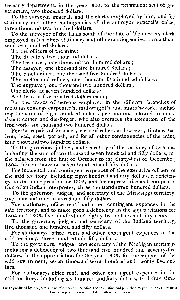 ―114― ―114―
treasury department, in the year 1800, to the permanent seat of go-
vernment, two thousand dollars.
To the surveyor general, and the clerks employed by him, and for
stationary and other contingencies of the surveyor general's office,
three thousand two hundred dollars.
To the surveyor of the lands south of the state of Tennessee, clerk
employed in his office, stationary and other contingencies, three thou-
sand two hundred dollars.
To the officers of the mint:
The director, two thousand dollars;
The treasurer, one thousand two hundred dollars;
The assayer, one thousand five hundred dollars;
The chief coiner, one thousand five hundred dollars;
The melter and refiner, one thousand five hundred dollars;
The engraver, one thousand two hundred dollars;
One clerk, at seven hundred dollars;
And two, at five hundred dollars each;
For the wages of persons employed in the different branches of
meting, coining, carpenter's, mill-wright's, and smith's-work, includ-
ing the sum of eight hundred dollars per annum, allowed to an as-
sistant coiner and die-forger, who also oversees the execution of the
iron work, six thousand two hundred dollars.
For the repairs of furnaces, costs of rollers and screws, timber, bar
iron, lead, steel, pot ash, and for all other contingencies of the mint,
four thousand two hundred dollars.
To the governor, judges, and secretary of the territory of Orleans,
including the sum of two thousand seven hundred and fifty dollars, for
the salaries from the first of October to the thirty-first of December,
1804, fifteen thousand seven hundred and fifty dollars.
For incidental and contingent expences of the executive officers of
the said territory, including eight hundred and fifty dollars, a deficien-
cy in the appropiation for 1805, and for express hire and compensa-
tion of an Indian interpreter, three thousand seven hundred dollars.
To the governor, judges, and secretary of the Missisippi territory,
five thousand nine hundred and fifty dollars.
For stationary, office rent, and other contingent expences in the
said territory, and to make good a deficiency in the appropriations for
1804 and 1805, five hundred and eighty-two dollars and fifty cents.
To the governor, judges, and secretary of the Indiana territory,
five thousand one hundred and fifty dollars.
For stationary, office rent, and other contingent expences in the
said territory, three hundred and fifty dollars.
To the governors, judges, and secretary of the Michigan territory,
including a deficiency of two thousand five hundred and seventy-five
dollars, in the appropriation for the year 1805, for the support of the
said government, seven thousand seven hundred and twenty-five dollars.
For stationary, office rent, and other contingent expences in the
said territory, including six hundred and forty dollars, to defray simi-
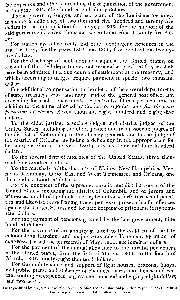 ―115― ―115―
lar expences and others attending the organization of the government
in the year 1805, nine hundred and ninety dollars.
To the governor, judges, and secretary of the Louisiana territory,
including a deficiency of two thousand five hundred and seventy-five
dollars in the appropriation for the year 1805, for the support of the
said government, seven thousand seven hundred and twenty-five dol-
lars.
For stationary, office rent, and other contingent expences in the
said territory, for the years 1805 and 1806, five hundred and twenty-
live dollars.
For the discharge of such demands against the United States, on
account of the civil department, not otherwise provided for, as shall
have been admitted in a due course of settlement at the treasury, and
which, according to usage, require payment in specie, two thousand
dollars.
For additional compensation to the clerks of the several departments
of state, treasury, war, and navy, and of the general post office, not
exceeding for each department, respectively, fifteen per centum, in
addition to the sums allowed by the act to regulate and fix the com-
pensation of clerks, eleven thousand eight hundred and eighty-five
dollars.
To the chief justice, associate judges, and district judges of the
United States, including the chief justice and two associate judges of
the district of Columbia; to the atorney general, and to the judge of
the district of Orleans, including a deficiency in the appropriation for
his compensation in the year 1804; fifty-six thousand four hundred
dollars.
To the several district attornies of the United States, three thou-
sand four hundred dollars.
To the marshals of the districts of Maine, New Hampshire, Ver-
mont, Kentucky, Ohio, East and West Tennessee, and Orleans, one
thousand six hundred dollars.
For the expences of the supreme, circuit, and district courts of the
United States, including the district of Columbia, and of jurors and
witnesses, in aid of the funds arising from fines, forfeitures, and penal-
ties, and likewise for defraying the expences of prosecution for offences
against the United States, and for safe keeping of prisoners, forty thou-
sand dollars.
For the payment of pensions granted by the late government, nine
hundred dollars.
For the payment of an annuity granted to the children of the late
colonel John Harding, and major Alexander Trueman, by an act of
congress, passed the fourteenth of May, 1800, six hundred dollars.
For the payment of the annual allowance to the invalid pensioners
of the United States, from the fifth of March, 1806, to the fourth of
March, 1807, ninety-eight thousand dollars.
For the maintenance and support of light houses, beacons, buoys,
and public piers, and stakeage of channels, bars, and shoals, and cer-
tain contingent expences, eighty-one thousand and eighty-eight dollars
and two cents.
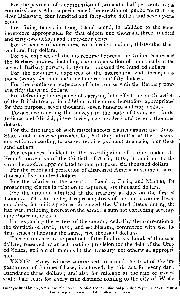 ―116― ―116―
For the payment of a commission of two and a half per cent. to the
commissioners who superintended the erection of public piers in the
river Delaware, four hundred and forty-eight dollars and seventy-one
cents.
For fixing buoys in Long Island sound, in addition to the sums
heretofore appropriated for that object, one thousand three hundred
and forty-two dollars and thirty-four cents.
For expences of intercourse with foreign nations, thirty-nine thou-
sand and fifty dollars.
For the expences of the intercourse between the United States and
the Barbary powers, including the compensation of the consuls at the
several Barbary powers, forty-nine thousand five hundred dollars.
For the contingent expences of the intercourse with foreign na-
tions, twenty-six thousand nine hundred and fifty dollars.
For the contingent expences of intercourse with the Barbary pow-
ers, fifty thousand dollars.
For defraying the expence of carrying into effect the sixth article
of the British treaty, in addition to the sums heretofore appropriated
for that purpose, seven thousand seven hundred and fifty dollars.
Towards completing the surveys in the state of Ohio, and in the
Indiana and Missisippi territories, one hundred and twenty thousand
dollars.
For the discharge of such miscellaneous claims against the United
States, not otherwise provided for, but duly admitted at the treasury,
and which, according to usage, require payment in specie, four thou-
sand dollars.
For expences incident to the investigation of claims under the
French convention of the thirtieth of April, 1803, in addition to the
sums heretofore appropriated to that purpose, six thousand dollars.
For the relief and protection of distressed American seamen, seven
thousand five hundred dollars.
For the salaries of the agents at London, Paris, and Madrid, for
prosecuting claims in relation to captures, six thousand dollars.
For the amount admitted at the treasury as due, on the first of
January, 1791, to the legal representatives of the late baron de Beau-
marchais, for military stores furnished the United States during the
late war, including interest on the same, a sum not exceeding seventy-
nine thousand dollars.
For exploring the waters of the country ceded by the convention of
the thirtieth of April, 1803, and establishing commerce with the In-
dian tribes inhabiting the same, five thousand dollars.
These sums are to be paid out of the fund of six hundred thousand
dollars, reserved by an act making provision for the debt of the Unit-
ed States, and out of monies in the treasury not otherwise appropri-
ated.
XXXIV. Every witness summoned to attend the trial of the im-
peachment of Samuel Chase, is allowed, by this act, for every day's
attendance three dollars; and also for mileage at the rate of twelve
and a half cents for every mile distance coming to the city of Wash-
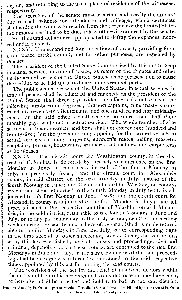 ―117― ―117―
ington, and returning to the usual place of residence of the witnesses,
respectively.
The secretary of the senate must ascertain and certify the amount
due to each witness for attendance and mileage; which certificate
shall entitle the witness to receive from the treasury of the United States
the amount certified to be due, unless otherwise ordered by the senate.
Six thousand dollars are appropriated to defray the expences incur-
red under this act.
XXXV. The second and fourth sections of an act, providing for a
naval peace establishment, and for other purposes, are repealed by this act.
The president of the United States is authorized by this act to keep
in actual service, in time of peace, as many of the frigates and other
public armed vessels of the United States, as he pleases, and to cause
the residue to be laid up in ordinary in convenient ports.
The public armed vessels of the United States, in actual service, in
time of peace, shall be officered and manned, as the president of the
United States shall direct; provided the officers do not exceed the
following numbers and degrees; thirteen captains, nine masters com-
mandant, seventy-two lieutenants, and one hundred and fifty midship-
men: but the said officers shall receive no more than half their
monthly pay, while not in actual service. The whole number of able
seamen, ordinary seamen, and boys shall not exceed nine hundred and
twenty-five; but the president may appoint, for the several vessels in
actual service, as many surgeons, surgeon's mates, sailing masters,
chaplains, pursers, boatswains, gunners, sail-makers, and carpenters,
as he pleases.
XXXVI. The circuit court for Washington county, in the dis-
trict of Columbia, is directed, by this act, to commence on the first
Monday in June, in each year, instead of the fourth Monday in
July, as previously fixed; and the circuit court for Alexandria
county, in said district, on the first Monday in July, instead of the
fourth Monday in June; and the circuit court for Washington county,
which then stood adjourned to the fourth Monday in July next, is ad-
journed to the first Monday in June, 1806; and the circuit court for
Alexandria county is adjourned to the first Monday in July; and all
process issued in the respective counties of Washington and Alexan-
dria, in the said district, returnable to the fourth Mondays in June and
July, or to any particular day in the first, second, or other succeeding
weeks during the said terms, as heretofore established, is made return-
able to the first Mondays in June and July, or to corresponding days
in the first, second, or other succeeding weeks during the said terms,
as by this law established; and all causes and proceedings, civil and
criminal, depending before these courts, are continued to the said first
Mondays in June and July, in the same manner as if the said proceed-
ings had been regularly returned or continued to the said respective
times appointed by this act for holding the said courts.
The provisions of the act for the relief of insolvent debtors within
the district of Columbia are extended to any debtor who may have been,
or hereafter shall be arrested and holden to bail in the said district.
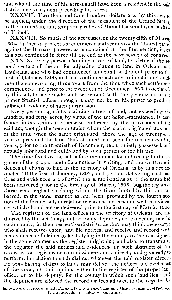 ―118― ―118―
and who at the time of his arrest shall have been a resident in the said
district one year, next preceding his arrest.
XXXVII. Two thousand four hundred dollars are, by this act, to
be applied, under the direction of the president of the United States,
to the immediate and temporary relief of Hamet Caramalli, ex-bashaw
of Tripoli.
XXXVIII. So much of the act passed on the twenty-fifth of March,
1804, further to protect the commerce and seamen of the United States
against the Barbary powers, as is contained in the first section, is, by
this act, continued in force till the end of the next session of congress.
XXXIX. Every person claiming a tract of land, by virtue of the se-
cond section of the act for adjusting claims to land in Orleans and
Louisiana, and who had commenced an actual settlement prior to the
first of October, 1800, and had continued actually to inhabit and culti-
vate the same, during three years from the time when such settlement
commenced, and prior to the twentieth of December, 1803, is declared,
by this act, to have made such settlement with the permission of the
proper Spanish officer, though it may not be in his power to produce
sufficient evidence of such permission.
Every person rightfully claiming a tract of land, not exceeding six
hundred and forty acres, by virtue of the act before-mentioned, is con-
firmed in his claim, if otherwise embraced by the provisions of the
said act, though the person under whom the claim originated was not,
at the time when the same originated, above the age of twenty-one
years: provided the land thus claimed had been for ten consecutive
years, prior to the twentieth of December, 1803, quietly possessed, and
actually inhabited and cultivated by such person or for his use.
The time fixed by the act before mentioned for delivering to the re-
gister of the proper land office notices in writing, and the written evi-
dences of claims to land in the territory of Orleans, is by this act ex-
tended till the first of January, 1807; and persons delivering such no-
tices and evidences are allowed the same benefits as if the same had
been delivered prior to the first day of March, 1806, but the rights of
those who neglect so doing within the time limited by this act are
barred, in the same manner as bad been provided by the fourth sec-
tion of the former act, in relation to claims, notices, and written eviden-
ces which should not be delivered prior to the first day of March, 1806.
The registers of the land offices in the territory of Orleans are au-
thorized by this act to appoint so many deputies, not exceeding one for
each county, in their respective districts, as they may think necessary;
who shall receive, enter, and file notices, and receive and record writ-
ten evidences of claims to lands lying in the county, to them assigned,
in the same manner as the register might do; and also, to transmit to
the register the said notices and evidences, or such abstracts of the
same, as the register, or commissioners, may direct; and generally to
perform, in relation to such claims, whatever the said register directs.
Persons having claims to land, may deliver the notices and evidences
of the same, at their option, either to the register of the proper land
office, or to his deputy, for the county in which such land lies; and
the deputies are allowed the recording fees allowed to the register by
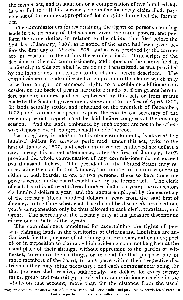 ―119― ―119―
the former act, and in addition, or a compensation of five hundred dol-
lars in full for all his services, one dollar for every claim filed, pay-
able out of the monies appropriated for carrying into effect the former
act.
The commissioners for ascertaining the rights of persons claiming
lands in the territory of Orleans are given the same powers, and per-
form the same duties, in relation to the claims thus filed before the
first day of January, 1807, as if notice of the same had been given be-
fore the first day of March, 1806, and as was provided by the former
act, in relation to the claims therein described. Transcripts of the
decisions of the said commissioners, and reports of the claims filed in
conformity to this act, shall be made and transmitted, as was provided
by the former act, in relation to the claims therein described. The
commissioners are also directed to enquire into the claims which may
arise from a right, or supposed right, to a double or additional con-
cession on the back of grants heretofore made, or from grants hereto-
fore made to minors, and not embraced by this act, or from grants
made by the Spanish government, subsequent to the first of April, 1800,
for lands actually settled and inhabited on the twentieth of December,
1803; and to make a special report thereon to the secretary of the
treasury; which report shall be laid before congress at the ensuing
session. And the lands embraced by such report are not to be other-
wise disposed of, till congress shall decide thereon.
Each register, in addition to his other emoluments, is allowed five
hundred dollars for services performed, under this act, prior to the
first of January, 1807, and each commissioner is allowed six dollars a
clay, during his actual attendance, after the first of January, 1807,
provided the whole compensation of any commissioner do not exceed
two thousand dollars. The president of the United States may re-
duce, after the said first of January, the number of commissioners in
either or both boards, to one or two persons, these to have the same
powers vested in the board established by the former act. The clerk
of each board is allowed fifteen hundred dollars a year; the translators
six hundred dollars a year, and the agents employed by the secretary
of the treasury fifteen hundred dollars a year, from the said first of
January, to the time when each board shall be dissolved, provided one
year's compensation only be thus allowed to each clerk, translator, and
agent. The secretary of the treasury may at his pleasure discontinue
either one or both of the agents.
The commissioners appointed for ascertaining the rights of per-
sons claiming lands in the territories of Orleans and Louisiana are au-
thorized, for the purpose of obtaining oral evidence, either in support
of, or in opposition to claims, which evidence could not be given at the
usual place of their sittings, without oppression to the parties or wit-
nesses, to remove their sittings, or to send for that purpose one or
more members of the board, to such place within their respective dis-
tricts as they may think necessary: and each commissioner going for
that purpose shall receive, additionally, six dollars for every twenty
miles, going and returning; provided no commissioner receive in the
whole, on that account, more than for the distance from the usual
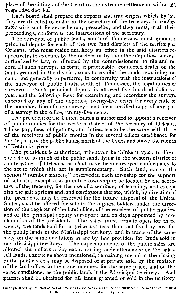 ―120― ―120―
place of the sittings of the board to the extreme settlements within his
respective district.
Each board shall prepare the reports and transcripts, which by law
they are directed to make to the secretary of the treasury, in confor-
mity with such forms as he may prescribe; and they must, in all their
proceedings, conform to the instructions of the secretary.
The surveyor of public lands, south of Tennessee, must appoint a
principal deputy for each of the two land districts of the territory of
Orleans, who must reside and keep an office in the said districts re-
spectively, to execute, by themselves or by the other deputies, surveys
authorized by law, or directed by the commissioners, to file and re-
cord all such surveys, to form, if practicable, connected drafts of the
lands granted in the district, so as to exhibit the lands remaining va-
cant, and generally to perform, in conformity with the instructions of
the surveyor of public lands, south of Tennessee, the legal duties of
surveyor. Each principal deputy is allowed five hundred dollars a
year, and the following fees: for examining and recording the surveys
executed by any of the deputies, twenty-five cents for every mile of
the boundary line of such survey; and for a certified copy of any plot
of a survey in the office, twenty-five cents.
The president of the United States is authorized to appoint a receiver
of public monies for the western district of the territory of Orleans,
whose pay, fees, obligations, and duties, are to be the same with those
of the receivers of public monies in the several offices established for
the disposal of the public lands, north of the Ohio, and above the mouth
of Kentucky river.
The president is authorized, whenever he thinks proper, to direct
the sale of so much of the public lands lying in the western district of
the territory of Orleans, as shall have been surveyed conformably to
the act to which this act is supplementary. Such land, except the
section “number sixteen,” reserved in each township for the support
of schools; except also an entire township to be located by the secre-
tary of the treasury, for the use of a seminary of learning, and except
also the salt springs and land contiguous thereto, which, by direction of
the president, may be reserved for the future disposal of the United
States, shall be offered for sale to the highest bidder, under the direc-
tion of the register of the land office, of the receiver of public monies,
and of the principal deputy surveyor; and on days appointed by pro-
clamation of the president. The sales must remain open for three
weeks, the lands sold for a price not less than that fixed by law for
the public lands in the Mississippi territory, and in tracts of the same
size, on the same conditions as are by law provided for lands sold in
the Missisippi territory. The superintendents of the public sales are
allowed six dollars a day each, during their attendance on the sales.
All lands, except as above mentioned, remaining unsold at the closing
of the public sales, may be disposed of at private sale, by the register
of the land office, in the same manner, for the same price, and on the
same conditions, as the public lands in the Missisippi territory. And
patents shall be obtained for all lands granted or sold in the territory
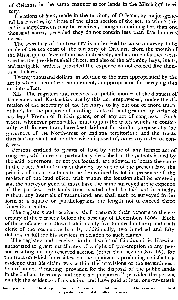 ―121― ―121―
of Orleans, in the same manner as for lands in the Missisippi terri-
tory.
Locations of land, made in the territory of Orleans, by major-gene-
ral La Fayette, by virtue of the ninth section of the act, to which this
act is a supplement, may be received, though containing less than one
thousand acres; provided they do not contain less than five hundred
acres.
The secretary of the treasury is authorized to cause a survey to be
made of the sea coast of the territory of Orleans, from the mouth of
the Missisippi to Vermillion bay inclusively, and as much farther west-
ward as the president shall direct, and also of the adjoining bays, inlets,
and navigable waters, provided the expence do not exceed five thou-
sand dollars.
Twenty thousand dollars, in addition to the sum appropriated by the
act to which this act is a supplement, is appropriated for carrying this
act into effect.
XL. The registers and receivers of public monies of the districts of
Vincennes and Kaskaskias are by this act empowered, under the di-
rection of the secretary of the treasury, to lay out one or more tracts
of land, for the purpose of locating tracts of land granted by virtue of
any legal French or British grant, or of any act of congress. Such
tracts, whenever practicable, must adjoin the tracts which, in confor-
mity with former laws, have been laid out for similar purposes by the
governors of the North-west or Indiana territories; and the tracts
thus laid out shall not be otherwise disposed of, unless by order of con-
gress.
Persons entitled to grants of land by virtue of any former act of
congress, which are not particularly described in the patents issued by
the said governors, or not yet located, are allowed to locate the same
in the tracts laid out in each district, by virtue of the present law, the
priority of such locations to he determined by lot in presence of the
register of the land office, with whom the location shall be entered;
and the surveyor general must have the same surveyed at the expence
of the parties. All lands thus located shall be laid out in a body,
without any intervals of vacant land, and shall each be surveyed in the
form of a square or parallelogram, the length not to exceed three
times its breadth.
The registers and receivers shall transmit their reports to the se-
cretary of the treasury before the first day of December, 1806. Each
of these officers are allowed additionally five hundred dollars; and each
clerk of the respective boards, additionally, two hundred and fifty
dollars, in full for his services in relation to such claims.
The register and receiver in the district of Cincinnati is likewise
authorized to grant certificates of a right of pre-emption to any per-
son residing on any reserved section (other than section No. 16), for
the tract on which he resides, on the applicant's producing satisfactory
evidence that his claim was within the provisions of the seventh sec-
tion of an act “making provision for the disposal of the public lands
in the Indiana territory, and for other purposes;” provided the person
exhibit the evidence of his claim, and have paid at least one-twentieth
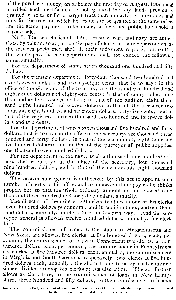 ―122― ―122―
of the purchase money, on or before the first day of August, 1806; and
provided such certificates be not granted for any lands previously
granted or sold, or for a larger tract than a quarter of a section, and
only for the tract on which he resides, to be granted at the same price,
and the same payments to be made, as for other public lands sold at
private sale.
XLI. The secretaries of state, treasury, war, and navy are autho-
rized by this act to apportion the pay of clerks in their departments, as
the services performed shall in their judgment require; but so that
the whole pay, in each department, shall not exceed the following
sums, annually:
For the department of state, seven thousand one hundred and fifty
dollars.
For the treasury department, forty-four thousand two hundred and
twenty-seven dollars and twenty-eight cents, that is to say: in the
office of the secretary of the treasury, ten thousand two hundred and
eighty-nine dollars and eighty-one cents; in that of comptroller, nine
thousand and sixty-seven dollars; in that of the auditor, eight thou-
sand eight hundred and eleven dollars; in that of the treasurer two
thousand eight hundred and seventeen dollars, forty-five cents; and in
that of the register, thirteen thousand two hundred and forty-two dol-
lars and two cents.
For the department of war, sixteen thousand five hundred and forty
dollars, that is to say: in the office of the secretary, six thousand three
hundred and forty dollars; in that of the accountant, eight thousand
five hundred dollars; and in that of the purveyor of public supplies,
one thousand seven hundred dollars.
For the department of the navy, twelve thousand nine hundred dol-
lars, that is to say: in the office of the secretary, four thousand
nine hundred dollars; and in that of the accountant, eight thousand
dollars.
The post-master general is authorized by this act to appoint such
number of clerks in his office, and to apportion their pay as he thinks
proper, but so that the whole ordinary amount do not exceed nine
thousand three hundred and forty-five dollars, annually.
The director of the mint is authorized to allow to one of his clerks
seven hundred dollars per annum; and in addition to expend one thou-
sand dollars, annually, in clerk hire, in his own way. And the sur-
veyor general is allowed twelve hundred dollars, annually, for clerk
hire.
The commissioners of loans, in the states of Massachusetts and
New York, are allowed five clerks, at five hundred dollars, each, per
annum; the commissioner of loans in Connecticut two clerks, at four
hundred dollars, each, per annum; the commissioner in Pennsylvania
six clerks, at five hundred dollars, each, annually; the commissioners
in Virginia and South Carolina, respectively, two clerks at five hun-
dred dollars each, annually: the allotted sum to be by each commis-
sioner divided among his clerks at his discretion. The act further
allows as clerk hire, to the commissioner of loans in New Hamp-
shire, three hundred and fifty dollars; to the commissioner in Rhode
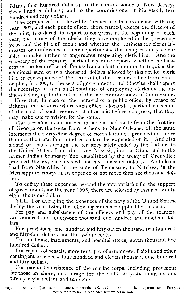 ―123― ―123―
Island, four hundred dollars; to the commissioner in New Jersey,
three hundred dollars; and to the commissioner in Maryland, two
hundred and fifty dollars.
The compensations allowed by this act are to commence with the
year 1807, and each public officer above named, except the director of
the mint, is ordered to report to congress, at the beginning of each
year, the names of the clerks they have employed in the preceding
year, and the hire of each; and whether the business for clerks in-
creases or diminishes in their departments, that congress may be en-
abled to make further arrangements respecting clerk hire. And the
secretary of the treasury particularly must report, whether the busi-
ness in the loan office of Pennsylvania shall continue to require the
additional sure of two thousand dollars allowed by this act for clerk
hire, in consequence of the removal of the treasury office from Phila-
delphia, in 1800, to the seat of government; and likewise shall report
the necessity, if such shall continue, of employing clerks on the bu-
siness belonging to the office of the late commissioner of the revenue.
Hereafter, in case of the removal of a public office, by reason of
sickness, in the town where such office is located, a particular account
of the cost of such removal shall be laid before congress, that they
may make due provision for the same.
The president is authorized to have a road made from the frontier
of Georgia on the route from Athens to New Orleans, till the same
intersects the thirty-first degree of north latitude; provided not more
than six thousand four hundred dollars be expended on it. And also
a road or roads through the territory lately ceded by the Indians to
the United States, from the river Missisippi to the Ohio, and to the
former Indian boundary line established by the treaty of Grenville;
provided the expence exceed not six thousand dollars. And also a
road from Nashville, in the state of Tennessee, to Natchez, in the
Missisippi territory, at an expence of not more than six thousand dol-
lars.
To defray these expences, beyond the appropriation for the support
of government, for the year 1806, there are allowed by this act twenty
eight thousand dollars.
XLII. For defraying the expences of the navy of the United States,
during the year 1806, the following sums are applied by this act:
For pay and subsistence of the officers and pay of the seamen,
two hundred and ninety-one thousand one hundred and nineteen dol-
lars.
For provisions, one hundred and fifty-seven thousand two hundred
and fifty-four dollars and thirty-four cents.
For medicine, instruments, and hospital stores, seven thousand five
hundred dollars.
For repairs of vessels, store rent, pay of armoires, freight and other
contingent expences, four hundred and eleven thousand nine hundred
and fifty dollars.
For pay and subsistence of the marine corps, including provisions
for those on shore, and forage for the staff, sixty-six thousand and
twenty-eight dollars and ten cents.
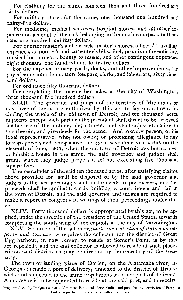 ―124― ―124―
For clothing for the same, fourteen thousand three hundred and
sixty dollars.
For military stores for the same, one thousand one hundred and
thirty-five dollars.
For medicine, medical services, hospital stores, and all other ex-
pences on account of the sick belonging to the marine corps, one thou-
sand one hundred and fifty dollars.
For quarter master's and barrack master's stores, officers’ travelling
expences, armoire's and carpenter's bills, fuel, premium for enlisting,
musical instruments, bounty to music, and other contingent expences,
eight thousand one hundred and forty-five dollars.
For the expence of navy yards, docks, and other improvements, the
pay of superintendents, store keepers, clerks, and labourers, sixty thou-
sand dollars.
For ordnance fifty thousand dollars.
For completing the marine barracks, at the city of Washington,
three thousand five hundred dollars.
XLIII. The governor and judges of the territory of Michigan, or
any three of them, are authorized by this act to lay out a town, in-
cluding the whole of the old town of Detroit, and ten thousand acres
adjacent, except such parts as the president shall direct to be reserved
for the use of the military department, and shall adjust all claims to
lots therein, and give deeds for the same. And to every person, or his
legal representative, who, not owing or professing allegiance to any
foreign power, and being above the age of seventeen years, did, on the
eleventh of June, 1805, when the old town of Detroit was burnt, own
or inhabit a house in the same, the said governor and judges shall
grant, where they judge proper, a lot not exceeding five thousand
square feet.
The remainder of the said ten thousand acres, after satisfying claims
above provided for, shall be disposed of by the said governor and
judges to the best advantage, and make deeds to purchasers, and the
proceeds shall be applied towards building a court house and jail in
the town of Detroit, and the said governor and judges are required to
make a report to congress, in writing, of their proceedings under this
act.
XLIV. Forty thousand dollars is appropriated by this act, to be ap-
plied, under the direction of the president of the United States, towards
completing the south wing of the capitol, at the city of Washington.
XLV. So much of the act to regulate the collection of duties on im-
ports and tonnage as requires the collector for the district of Great
Egg harbour, in new Jersey, to reside at Somer's Point, is by this
act repealed; and the said collector is allowed to reside at such place,
within said district, as may be directed by the secretary of the trea-
sury.
The town or landing place of Darien, on the Alatamaha river, in
Georgia, is made a port of delivery, annexed to the district of Bruns-
wick, and subjected to the same regulations as other ports of delivery.
A surveyor is to be appointed to reside at the said port, and to receive
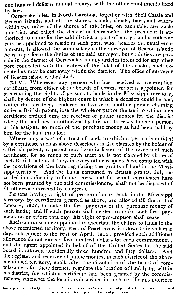 ―125― ―125―
one hundred dollars, annual salary, with the other emoluments fixed
by law.
Ocracocke inlet, in North Carolina, together with Shell Castle and
Beacon islands, and all the shores, islands, shoals, bays, and waters
within two miles of the shores of said inlet, on each side, are made
a district, and called the district of Ocracocke; the president is au-
thorized to name for the said district a port of entry; and a collector
is to be appointed to reside at such port, who, besides the usual emo-
luments, is allowed the same salary as the surveyor of Beacon island;
he is to perform the duties of the said surveyor, but no duties are pay-
able in the district of Ocracocke, on any articles intended for any other
port connected with the waters of the inlet of Ocracocke, such ex-
cepted as may be cast away within the district. The office of surveyor
of Beacon island is abolished.
XLVI. Whenever any person who has received a pre-emption
certificate, from either of the boards of commissioners, appointed for
ascertaining the rights of persons to lands in the Missisippi territory,
shall, by decree of the highest court in which a decision could be had,
within the territory, rendered in favour of another person claiming
under a British patent, lose the whole or part of the land to which such
certificate entitled him, the receiver of public monies for the district
where the land lies is authorized by this act to repay to such person,
or his assigns, so much of the purchase money as had been paid by
him for the land thus lost.
Where only a part of a tract of land, to which a person is entitled
by a certificate such as above described, is also claimed by the holder of
a British patent, a patent may issue in favour of the owners of such
certificate, for so much of such tract as is not claimed by virtue of
such British patent, if they, in every other respect, have complied with
the provisions of the laws regulating the grants of land in the Missi-
sippi territory. And the lands contained in British grants, duly re-
corded in conformity to former laws, and for which certificates have
not been granted by the said commissioners, shall not be disposed of
till otherwise directed by congress.
Persons having a right of pre-emption to lands in the Missisippi
territory, by certificates granted as above, are allowed till the first of
January, 1807, to make the first payment of the purchase money of
such lands; and if such person shall neglect to make such first pay-
ment, on or before that day, his right of pre-emption shall cease.
Each commissioner appointed to ascertain the claims to lands in the
above mentioned territory, west of Pearl river, is allowed six dollars a
day, subsequent to the first of April, 1806; provided such additional
allowance do not exceed five hundred dollars for each commissioner;
and the agent appointed in behalf of the United States for the said
board is allowed additionally three hundred and fifty dollars. And
the register and receiver of public monies, in each district of the above
mentioned territory, shall, after the dissolution of the board of com-
missioners for their district, regulate the location of land lying within
his district, for which a certificate had been granted by the commis-
sioners, whenever the locations described in such certificates interfere
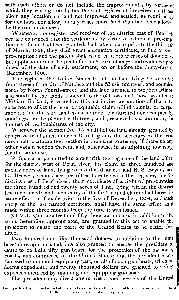 ―126― ―126―
with each other, or do not include the improvements, by virtue of
which they were granted; but the said register and receiver shall not
allow any location on land not improved and settled, as required by
former laws, nor allow, in any case, more land than had been allowed
by the commissioners.
Whenever the register and receiver of the district east of Pearl ri-
ver are convinced that the settlement, by virtue of which a pre-emp-
tion certificate had been granted, had taken place prior to the thirtieth
of March, 1798, they shall grant a donation certificate, in lieu of such
pre-emption; and the patent shall issue as in other cases of donations:
but application must be made for such an exchange, and evidence pro-
duced of the date of such settlement, on or before the thirty-first of
December, 1806.
The right of the United States to all the land lying between the
front street of the city of Natchez and the Missisippi river, and bounded
north by North Fourth-street, and the land granted to Stephen Minor,
and south by the lands annexed to the old fort, and those granted to
William Barland, is vested by this act in the corporation of that city,
so as not to affect the legal or equitable claim of individuals, or corpo-
rations; but the said land must neither be cultivated nor occupied by
buildings, but be planted with trees, and preserved as a common, for
the use of the inhabitants of the city.
Whenever the section No. 16 shall fall on land already granted by
congress, or claimed under a British grant, the secretary of the trea-
sury shall locate another section in the same township, if there be any
other vacant section therein, and, otherwise, in an adjoining township,
for the same use.
R. Sparks is permitted to enter with the register of the land office,
for the district west of Pearl river, his claim to three hundred and
twenty acres of land, lying within that district; and R. S. Bryan, and
G. Brewer, senior, are permitted to enter with the register, for the
district east of Pearl river, their certificate of a right of pre-emption
for three hundred and twenty acres of land, lying within the district
last mentioned: and such entry of the first named claim shall have the
same effect, as if made prior to the first of December, 1804, and such
entry of the last named certificate shall have the same effect as if
made within three months from the time it was issued.
XLVII. One hundred and fifty thousand dollars, in addition to the
sums heretofore appropriated, are granted by this act to enable the
president to cause the ports of the United States to be better for-
tified.
Two hundred and fifty thousand dollars, in addition to the sums
heretofore appropriated, are also granted to enable the president to
cause to be built fifty gun boats, for the protection of the harbours,
coasts, and commerce of the United States; and the president is au-
thorized to man and equip any part, or all of such gun boats, when he
deems expedient; and twenty thousand dollars are granted to defray
expences incurred by manning and equipping gun boats.
The president may direct any of the armed vessels of the United
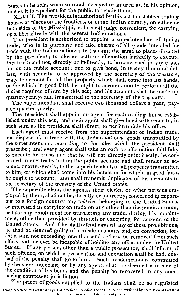 ―127― ―127―
States to be sold, when so much decayed or injured as, in his opinion,
makes it inexpedient for the public to repair them.
XLVIII. The president is authorized by this act to establish trading
houses at places on the frontiers, or in the Indian country, on either or
both sides of the Missisippi, as he shall judge convenient, for carrying
on a liberal trade with the several Indian nations.
The president is authorized to appoint a superintendant of Indian
trade, who is to purchase and take charge of all goods intended for
trade with the Indian nations; to transmit the same to places directed
by the president; to take an oath or affirmation faithfully to execute
this trust; and not, directly or indirectly, to be concerned in any trade,
but on the public account; and to give bond, in twenty thousand dol-
lars, with security to be approved by the secretary of the treasury,
truly to account for all the property which shall come into his hands,
or for which in good faith he ought to account, and to perform all the
duties required of him by this act; and his accounts shall be made up
quarter-yearly, and transmitted to the secretary of the treasury.
The superintendant shall receive two thousand dollars a year, pay-
able quarter-yearly.
The president shall appoint an agent for each trading house estab-
lished under this act; and such agent shall give bond with security, in
such sum as the president shall direct, to perform duly his office.
Each agent must receive from the superintendant of Indian trade,
and dispose of, in trade with the Indian nations, goods transmitted by
the superintendant, according to the rules which the president shall
prescribe; and every agent shall take an oath or affirmation faithfully
to execute his trust, and that he will not, directly or indirectly, be con-
cerned in any trade, but on the public account, and shall render an ac-
count, quarter-yearly, to the superintendant, of all property transmitted
to him, or which shall come into his hands, or for which, in good faith,
he ought to account; and shall transmit duplicates of his accounts to
the secretary of the treasury of the United States.
The superintendant, the agents, their clerks, or other persons em-
ployed by them, shall not be, directly or indirectly, concerned in export-
ing to a foreign country any peltries belonging to the United States,
or interested in carrying on trade on any other than the public account,
or take any emolument for transacting any trade, during his appoint-
ment, other than provided by this act, or excepting for account of the
United States. And if he shall offend against any of these prohibitions,
he shall be deemed guilty of a misdemeanour, and, on conviction, for-
feit a sum not exceeding one thousand dollars, be removed from such
office, and for ever be incapable of holding any office under the United
States. If any person, other than a public prosecutor, shall inform of
such offence, on which a prosecution and conviction shall be had, one-
half of the penalty shall go to him. Such misdemeanour, committed
by the superintendant, or by any agent, shall be deemed a breach of
the condition of his bond, and the penalty be recovered in any court
having competent jurisdiction.
The prices of goods supplied to the Indians shall be so regulated
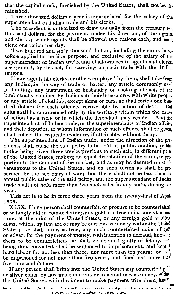 ―128― ―128―
that the capital stock, furnished by the United States, shall not be di-
minished.
Three thousand dollars a year is appropriated for the salary of the
superintendant of Indian trade and his clerks.
The president is authorized to draw annually from the treasury ten
thousand dollars, for the payment, under his direction, of the agents
and clerks; which agents shall be allowed two rations each, and each
clerk one ration per day.
Two hundred and sixty thousand dollars, including the sums here-
tofore applied to the like purpose, and exclusive of the salary of the
superintendant of Indian trade, and of allowances to agents and clerks,
are granted, by this act, for carrying on such trade with the Indian
nations.
If any agent, his clerks, or others employed by them, shall take from
any Indian, in the way of trade or barter, any article commonly used
in hunting, any instrument of husbandry or cooking utensil, of the
kind usually obtained by Indians in their intercourse with white people,
or any article of clothing, except skins or furs, he shall forfeit one hun-
dred dollars for each offence, recoverable by action of debt. But
suits shall be commenced only in the territory within which the cause
of action has arisen, or in which the defendant may reside. And the
superintendant of Indian trade, or the superintendants of Indian affairs,
and their deputies, to whom information of such offence shall be given,
shall collect the requisite evidence, if attainable, without delay.
The superintendant of Indian trade, under the direction of the pre-
sident, shall cause the said peltry to be sold at public auction, public
notice being given three weeks previous to such sale, in different parts
of the United States, making an equal distribution of the same, in pro-
portion to the demand of the market, and as may be deemed most ad-
vantageous to the United States, and on such terms as shall be pre-
scribed by the secretary of war; but there shall not be less than six
annual public sales of the said peltry, and the superintendant of Indian
trade shall not hold more than two such sales in any state, during one
year.
This act is to be in force three years from the twenty-first of April,
1806.
XLIX. If any person shall counterfeit, or procure to be counterfeited,
or willingly aid in counterfeiting, any gold or silver coin, coined, at any
time, at the mint of the United States, or any foreign gold or silver
coins, which, by law, are or may be current, as money within the United
States; or shall utter, as true, any such counterfeited coins of gold
or silver, for the payment of money, with intention to defraud, knowing
them to be counterfeited, he shall be deemed guilty of felony, and
being duly convicted, shall be sentenced to imprisonment, and kept at
hard labour for not less than three, nor more than ten years; or shall
be imprisoned for not more than five years, and fined not more than
five thousand dollars.
If any person shall bring into the United States any counterfeit gold
or silver coins, by law made current, or in actual use, as money, within
the United States, with the intent to make payment with them, know-
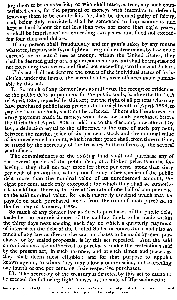 ―129― ―129―
ing them to be counterfeit; or who shall utter, as true, any such coun-
terfeited coins, for the payment of money, with intention to defraud,
knowing them to be counterfeit, he shall be deemed guilty of felony,
and, being; duly convicted, shall be sentenced to imprisonment, and
kept at hard labour for not less than two, nor more than eight years;
or shall be imprisoned not exceeding two years, and fined not exceed-
ing four thousand dollars.
If any person shall fraudulently and for gain's sake, by any means
whatever, impair, falsify, or lighten the gold or silver coins, by law made
current, or in actual use as money, within the United Stales, they
shall be deemed guilty of a high misdemeanour, and shall be imprisoned
not exceeding two years, and fined not exceeding two thousand dollars.
This act shall not deprive the courts of the individual states of juris-
diction, under the laws of the several states, over offences made punish-
able by this act.
L. So much of any former laws as authorize the receipt of evidences
of the public debt, in payment for the public lands, is, after the thirtieth
of April, 1806, repealed by this act; but the right of all persons who may
have purchased public lands previous to the eighteenth of April, 1806, to
pay for them in stock, shall not be affected. There shall be allowed on
every payment made in money, when due, for lands purchased before
the thirtieth of April, 1806, in addition to the discount, now allowed by
law, a deduction equal to the difference at the time of such payment,
between the market price of six per cent, stock and the nominal value
of its unredeemed amount, which market price shall, from time to time,
be stated by the secretary of the treasury to the officers of the several
land offices.
The commissioners of the sinking fund shall not purchase any of
the several species of the public debt, at a higher price than the fol-
lowing: they shall not pay more for three per cent, stock than sixty
per cent, of its nominal value; nor for any other species of the public
debt more than the nominal value of its unredeemed amount, the
eight per cent, stock only excepted; for which they shall be authoriz-
ed, in addition thereto, to give at the rate of one half of one per cent.
on the said nominal value, for each quarterly dividend which may be
payable on such purchased stock, from the time of such purchase to
the first day of January, 1809.
So much of any former law as directs purchases of the public debt,
made by the commissioners of the sinking fund, to be made within
the thirty days next ensuing each clay on which a quarterly payment
of interest on the debt of the United States becomes due: and also so
much of any law as directs the said purchases to be made by open pur-
chase, or by sealed proposals, is by this act repealed. And the said
commissioners are authorized to purchase, under the restrictions laid
by the present act, in such manner, and at such times and places as
they shall deem most eligible; and for that purpose to appoint
known agents, to whom they may allow a commission, not exceeding
one fourth of one per cent, on their respective purchases.
LI. The secretary of the treasury is directed by this act to cause to
be erected the following light houses in the state of Massachusetts:
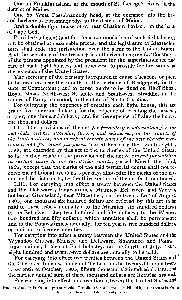 ―130― ―130―
One on Franklin island, at the mouth of St. George's river, in the
district of Maine.
One on West Passamaquody head, at the entrance into the bay
and harbour of Passamaquody, in the district of Maine.
And a double light house at or near Chatham harbor, on the back
of Cape Cod.
Provided sufficient land for the accommodation of such light houses
can be obtained at reasonable prices, and the legislature of Massachu-
setts shall cede the jurisdiction over the same to the United States.
And the secretary of the treasury is authorized to agree for the wages
of the persons appointed by the president for the superintendence and
care of such light houses, and otherwise to provide for the same, at
the expence of the United States.
The secretary of the treasury is required to cause a beacon, or pier,
to be erected near the mouth of the harbour of Bridgeport, in the
state of Connecticut; and to cause buoys to be fixed on Bluff Shoal,
Royal Shoal, North-west Straddle, and South-west Straddle, in the
waters of Pamptico sound, in the state of North Carolina.
For defraying the expences of erecting each light house, this act
grants five thousand dollars; for the expence of erecting the beacon,
or pier, one thousand dollars; and for the expence of fixing the buoys,
one thousand dollars.
LII. The provisions of the act for providing compensation for the
marshals, clerks, attornies, jurors, and witnesses, in the courts of
the United States, and to repeal certain parts of the acts therein men-
tioned, and for other purposes, passed February the twenty-eighth,
1799, are extended by this act to the territories of the United States,
so far as they relate to the provisions of the act to extend jurisdiction
in certain cases to the territorial courts, passed March the third,
1805, except that the clerks of the said territorial courts shall not re-
ceive the additional five dollars per day, allowed to the clerks of the cir-
cuit and district courts, by the third section of the act first mentioned.
LIII. For carrying into effect a treaty between the United States
and the Delawares, Polawatimies, Miamies, Eel river, and Weaws,
holden at Grouseland, near Vincennes, on the twenty-first of August,
1805, one thousand six hundred dollars are ordered by this act to be
paid to these tribes, annually: to the Miamies, six hundred dollars;
to the Eel river tribe, two hundred and fifty dollars; to the Weaws,
two hundred and fifty dollars; which annuities shall be permanent;
and to the Potawatimies, annually, for ten years, five hundred dollars,
in addition to former annuities.
For carrying into effect a treaty between the United States and the
Wyandot, Ottawa, Munsee and Delaware, Shawanee, and Potawa-
timie nations, holden at Fort Industry, on the fourth of July, 1805,
eight hundred and twenty-five dollars are annually to be paid.
For carrying into effect two treaties between the United States and
the Cherokee Indians, holden at Tellico, on the twenty-fifth and twen-
ty-seventh of October, 1805, fifteen thousand six hundred dollars, and
the further annual sum of three thousand dollars are likewise granted.
For carrying into effect a convention between the United States and
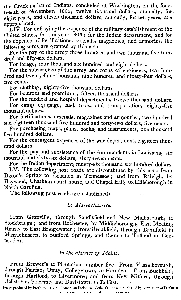 ―131― ―131―
the Creek nation of Indians, concluded at Washington, on the four-
teenth of November, 1805, twelve thousand dollars, annually, for
eight years, and eleven thousand dollars, annually, for ten years, are
appropriated.
LIV. For defraying the expence of the military establishment of the
United States, for the year 1806; for the Indian department, and for
the expence of fortifications, arsenals, magazines, and armories, the
following sums are granted by this act:
For the pay of the army three hundred and two thousand five hun-
dred and fifty-six dollars.
For forage, four thousand six hundred and eight dollars.
For the subsistence of the army and corps of engineers, two hun-
dred and twenty-four thousand, nine hundred and ninety-four dollars,
five cents.
For clothing, eighty-five thousand dollars.
For bounties and premiums, fifteen thousand dollars.
For the medical and hospital departments; twelve thousand dollars.
For camp equipage, fuel, tools, and transportation, eighty-five
thousand dollars.
For fortifications, arsenals, magazines and armouries, two hundred
and eighteen thousand five hundred and forty-two dollars, five cents.
For purchasing maps, plans, books, and instruments, one thousand
five hundred dollars.
For the contingent expences of the war department, eighteen thou-
sand dollars.
For the pay and subsistence of the commandants in Louisiana, six
thousand and sixty-six dollars, sixty-seven cents.
For the Indian department, ninety-six thousand six hundred dollars.
LV. The following post roads are discontinued by this act: from
Dixon's Spring to Lebanon in Tennessee; and from Raleigh, by
Haywood, Chatham court house, and Chapel Hill, to Hillsborough in
North Carolina.
The following post roads are established:
In Massachusetts.
From Granville, through Sandisfield and New Malborough, to
Stockbridge; and from Rochester, by Middleborough, East Meeting
House, to East Bridgewater; from Brookfield, through Brimfield in
Massachusetts, to Stafford Springs, and thence to Tolland in Con-
necticut.
In the district of Maine.
From Brewer's to Plantation number five. From Vassalborough,
through Fairfax, Unity, Collegetown, to Hamden. From Buckfield,
through Hartford, to Livermore; and from New Milford, through
Ballstown, Palermo, and Davistown, to Belfast.
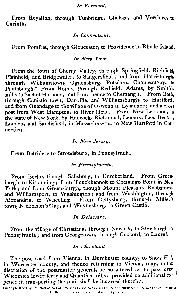 ―132― ―132―
In Vermont.
From Royalton, through Tunbridge, Chelsea, and Vershire, to
Corinth.
In Connecticut
From Pomfret, through Gloucester, to Providence in Rhode Island.
In New York.
From the town of Cherry Valley, through Springfield, Richfield,
Plainfield, and Bridgewater, to Sangersfield; and from Harrisburgh,
through Williamstown, Ogdensburg, Potsdam, Chauteaugay
, to Plattsburgh. From Rome, through Redfield, Adams, by Smith's
mills to Sacket Harbour, and from thence to Chemangh. From Bath,
through Canistio town, Danville, and Williamsburgh, to Hartford;
and from Onandago to the village of Oswego in Lysander; and a cross
post from West Hampton, to River Head. From New Lebanon, in
the state of New York, by Hancock, Richmond, Lennox, Lee, Becket,
Loudon, and Sandisfield, in Massachusetts, to New Hartford in Con-
necticut.
In New Jersey.
From Belvidere to Stroudsburg, in Pennsylvania.
In Pennsylvania.
From Berlin, though Salisbury, to Cumberland. From Green-
burgh to Kittanning; from Tunckhannok to Chenango Point in New
York; and from Greensburgh, though Mount Pleasant, Robbstown,
and Williamsport, to Washington; and from Washington, through
Alexandria, to Wheeling. From Gettysburg, through Miller's
town, Nicholson's Gap, and Waynesburg, to Green Castle.
In Delaware.
From the village of Christiana, through Newark, to Strasburgh in
Pennsylvania; and from Georgetown, through Concord, to Laurel.
In Maryland.
The post road from Vienna, in Dorchester county, to Snow Hill,
in Worcester county, and thence returning to Vienna, may, in the
discretion of the postmaster general, be so altered as to pass over
Wicomico lower ferry and Quantico mills: provided no additional ex-
pence in transporting the mail shall be incurred thereby.
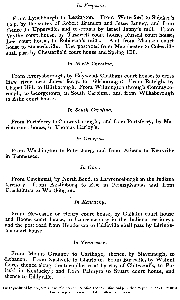 ―133― ―133―
In Virginia.
From Lynchburgh to Lexington. From Waterford to Snicker's
Gap, by the stores of Robert Branden and Jesse Janney, and from
thence to Upperville, and to return by Israel Janny's mill. From
Wythe court house, by Tazewell court house, Russell court house,
Lee court house, to Robinson's mills. And from Madison court
house to Stanardsville. The post road from Manchester to Colesville
shall pass by Chesterfield court house and Spring Hill.
In North Carolina.
From Averysborough, by Haywood, Chatham court house, to cross
Haw river near Jones’ ferry, to Hillsborough: From Raleigh, by
Chapel Hill, to Hillsborough. From Wilmington through Conwaybo-
rough, to Georgetown, in South Carolina; and from Wilksborough
to Ashe court house.
In South Carolina.
From Portsferry to Conwayborough; and from Portsferry, by Ma-
rion court house, to Thomas Harley's.
In Georgia.
From Washington to Petersburg, and from Athens to Knoxville
in Tennessee.
In Ohio.
From Cincinnati, by North Bend, to Lawrenceburgh in the Indiana
territory. From Austinburg to Erie in Pennsylvania, and from
Franklinton to Worthington.
In Kentucky.
From Newcastle or Henry court house, by Gallatin court house
and Boone court house, to Laurenceburg in the Indiana territory;
and the post road from Henderson to Eddeville shall pass by Livings-
ton court house.
In Tennessee.
From Mount Granger to Carthage, thence, by Navenaugh, to
Lebanon. From Nashville to Charlotte. From Burrville, by Walnut
Cove, thence along the turnpike road by way of Chitwood's, to Pu-
laski in Kentucky; and from Palmyra to Stuart court house, and
thence to Eddyville.
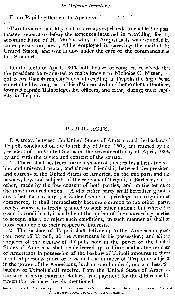 ―134― ―134―
In Orleans territory.
From Rapid settlement to Apelousa.
Two hundred and fifty dollars are appropriated, to enable the post-
master general to defray the expences incurred in providing for the
accommodation of H. Webb, who, in August last, was wounded by
some person unknown, while employed in carrying the mail of the
United States, and who is now under the care of the commandant at
fort Stoddert
On the tenth of April, 1806, both houses of congress resolved, that
the president be requested to make known to Nicholas C. Nissen, es-
quire, his Danish majesty's consul residing at Tripoli, the high sense
entertained by congress of his disinterested and benevolent attentions,
towards captain Bainbridge, his officers, and crew, during their capti-
vity in Tripoli.
PUBLIC ACTS.
I. A treaty between the United States of America and the bashaw of
Tripoli, concluded on the fourth day of June, 1805, and ratified by the
president of the United States on the seventeenth day of April, 1806,
by and with the advice and consent of the senate.
1. There shall be, from the conclusion of this treaty, a firm, inviola-
ble, and universal peace, and sincere friendship betweed the president
and citizens of the United States of America, on the one part, and the
bashaw, bey, and subjects of the regency of Tripoli, in Barbary, on the
other, made by the free consent of both parties, and on the terms of
the most favoured nation. And if either party shall hereafter grant to
any other nation, any particular favour or privilege in navigation or
commerce, it shall immediately become common to the other party,
freely, where it is freely granted to such other nation; but where the
grant is conditional, it shall be at the option of the contracting parties
to accept, alter, or reject such conditions, in such manner as shall be
most conducive to their respective interests.
2. The bashaw of Tripoli shall deliver up to the American squad-
ron, now off Tripoli, all the Americans in his possession; and all the
subjects of the bashaw of Tripoli, now in the power of the United
States of America, shall be delivered up to him; and as the number
of Americans in possession of the bashaw of Tripoli amounts to three
hundred persons, more or less, and the number of Tripoline subjects
in the power of the Americans, is about one hundred, more or less, the
bashaw of Tripoli shall receive, from the United States of America.
the sum of sixty thousand dollars, as a payment for the difference be-
tween the prisoners herein mentioned.
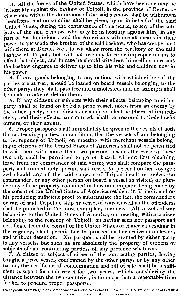 ―135― ―135―
3. All the forces of the United States, which have been, or may be
in hostility against the bashaw of Tripoli, in the province of Derne, or
elsewhere within the dominions of the said bashaw, shall be withdrawn
therefrom, and no supplies shall be given, by or in behalf of the said
United States, during the continuance of this peace, to any of the sub-
jects of the said bashaw, who may be in hostility against him, in any
part of his dominions; and the Americans will use all means in their
power to persuade the brother of the said bashaw, who has co-operated
with them at Derne, &c, to withdraw from the territory of the said
bashaw of Tripoli, but will not use any force or improper means to
effect that object; and in case he should withdraw himself as aforesaid,
the bashaw engages to deliver up to him his wife and children now in
his power.
4. If any goods belonging to any nation, with which either of the
parties are at war, should be loaded on board vessels belonging to the
other party, they shall pass free and unmolested, and no attempts shall
be made to take or detain them.
5. If any citizens or subjects with their effects, belonging to either
party, shall be found on board a prize vessel, taken from an enemy by
the other party, such citizens or subjects shall be liberated immedi-
ately, and their effects, so captured, shall be restored to their lawful
owners, or their agents.
6. Proper passports shall immediately be given to the vessels of both
the contracting parties, on condition, that the vessels of war belonging
to the regency of Tripoli, on meeting with merchant vessels belong-
ing to citizens of the United States of America, shall not be pennitted
to visit them with more than two persons besides the rowers; these
two only shall be permitted to go on board, without first obtaining
leave from the commander of said vessel, who shall compare the pass-
port, and immediately permit said vessel to proceed on her voyage;
and should any of the said subjects of Tripoli insult or molest the
commander, or any other person on board a vessel so visited, or plun-
der any of the property contained in her, on complaint being made by
the consul of the United States of America resident in Tripoli, and on
his producing sufficient proof to substantiate the fact, the commanders
or rais of said Tripoline ship or vessel of war, as well as the offenders,
shall be punished in the most exemplary manner. All vessels of war
belonging to the United States of America, on meeting with a cruizer
belonging to the regency of Tripoli, on having seen her passport and
certificate from the consul of the United States of America residing in
the regency, shall permit her to proceed on her cruize unmolested,
and without detention. No passport shall be granted by either party
to any vessels, but such as are absolutely the property of citizens or
subjects of said contacting parties, oh any pretence whatever.
7. A citizen or subject of either of the contracting parties, having
bought a prize vessel, condemned by the other party, or by any other
nation, the certificate of condemnation and bill of sale shall be a suffi-
cient passport for such vessel for two years, which, considering the
distance between the two countries, is no more than a reasonable time
for her to procure proper passports.
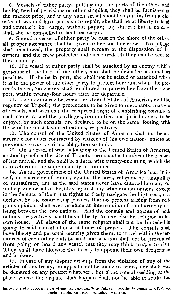 ―136― ―136―
8. Vessels of either party, putting into the ports of the other, and
having need of provisions or other supplies, they shall be furnished at
the market price, and if any such vessel should so put in, from a dis-
aster at sea, and have occasion to repair, she shall be at liberty to land
and reimbark her cargo, without paying any duties; but in no case
shall she be compelled to land her cargo.
9. Should a vessel of either party be cast on the shore of the other,
all proper assistance shall be given to her and her crew. No pillage
shall be allowed, the property shall remain at the disposition of the
owners, and the crew protected and succoured, till they can be sent to
their country.
10. If a vessel of either party shall be attacked by an enemy within
gun-shot of the forts of the other, she shall be defended as much as
possible. If she be in port, she shall not be seized or attacked when
it is in the power of the other party to protect her; and when she pro-
ceeds to sea, no enemy shall be allowed to pursue her from the same
port, within twenty-four hours alter her departure.
11. The commerce between the United States of America, and the
regency of Tripoli; the protections to be given to merchants, masters
of vessels, and seamen; the reciprocal right of establishing consuls in
each country, and the privileges, immunities, and jurisdictions, to be
enjoyed by such consuls, are declared to be on the same footing with
those of the most favoured nations, respectively.
12. The consul of the United States of America shall not be an-
swerable for debts contracted by citizens of his own nation, unless he
previously gives a written obligation so to do.
13. On a vessel of war, belonging to the United States of America,
anchoring before the city of Tripoli, the consul is to inform the bashaw
of her arrival, and she shall be saluted with twenty-one guns, which she
is to return in the same quantity or number.
14. As the government of the United States of America has, in it-
self, no character of enmity against the laws, religion, or tranquillity
of mussulmen, and as the said states never have entered into any vo-
luntary war or act of hostility against any Mahometan nation, except
in the defence of their just rights to freely navigate the high seas, it is
declared by the contracting parties, that no pretext arising from reli-
gious opinions shall ever produce an interruption of the harmony ex-
isting between the two nations. And the consuls and agents of both
nations respectively shall have liberty to exercise his religion in his
own house. All slaves of the same religion shall not be impeded in
going to said consul's house at hours of prayer. The consuls shall
have liberty and personal security given them, to travel within the ter-
ritories of each other both by land and sea, and shall not be prevented
from going on board any vessel that they may think proper to visit.
They shall have likewise the liberty to appoint their own drogerman
and brokers.
15. In case of any dispute arising, from the violation of any of the
articles of this treaty, no appeal shall be made to arms, nor shall war
be declared on any pretext whatever; but if the consul residing at the
place where the dispute shall happen shall not be able to settle the
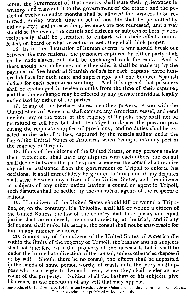 ―137― ―137―
same, the government of that country shall state their grievances in
writing, and transmit it to the government of the other; and the pe-
riod of twelve calendar months shall be allowed for answers to be re-
turned; during which time no act of hostility shall be permitted by
either party; and in case the grievances are not redressed, and a war
should be the event, the consuls and citizens or subjects of both parties
reciprocally shall be permitted to embark with their effects unmo-
lested, on board of what vessel or vessels they shall think proper.
16. If, in the fluctuation of human events, a war should break out
between the two nations, the prisoners captured by either party shall
not be made slaves, but shall be exchanged rank for rank. And if
there should be a deficiency on either side, it shall be made up by the
payment of five hundred Spanish dollars for each captain, three hun-
dred dollars for each mate and supercargo, and one hundred Spanish
dollars for each seaman so wanting. And it is agreed that prisoners
shall be exchanged in twelve months from the time of their capture;
and that the exchange may be effected by any private individual legally
-authorized by either of the parties.
17. If any of the Barbary states, or other powers, at war with the
United States of America, shall capture any American vessel, and send
her into any of the ports of the regency of Tripoli, they shall not be
permitted to sell her, but shall be obliged to depart the port, on pro-
curing the requisite supplies of provisions; and no duties shall be ex-
acted on the sale of prizes, captured by the vessels sailing under the
flag of the United States of America, when brought into any port in
the regency of Tripoli.
18. If any of the citizens of the United States, or any persons under
their protection, shall have any disputes with each other, the consul
shall decide between the parties; and whenever the consul shall require
any aid or assistance from the government of Tripoli to enforce his
decisions, it shall immediately be granted to him; and if any disputes
shall arise between any citizen of the United States, and the citizens
or subjects of any other nation having a consul or agent in Tripoli,
such disputes shall be settled by the consuls or agents of the respective
nations.
19. If a citizen of the United States should kill or wound a Tripo-
line, or, on the contrary, if a Tripoline shall kill or wound a citizen of
the United States, the law of the country shall take place, and equal
justice shall be rendered, the consul assisting at the trial; and if any
delinquent shall make his escape, the consul shall not be answerable for
him in any manner whatever.
20. Should any of the citizens of the United States of America die
within the limits of the regency of Tripoli, the bashaw and his subjects
shall not interfere with the property of the deceased, but it shall be
under the immediate direction of the consul, unless otherwise disposed
of by will. Should there be no consul, the effects shall be deposited
in the hands of some person worthy of trust, until the party shall ap-
pear who has a right to demand them, when they shall render an ac-
count of the property. Neither shall the bashaw or his subjects give
hindrance in the execution of any will that may appear.
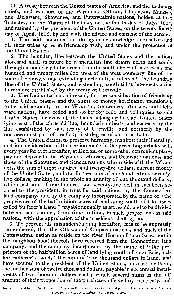 ―138― ―138―
II. A treaty between the United States of America, and the sachems,
chiefs, and warriors of the Wyandot, Ottawa, Chippawa, Munsee,
and Delaware, Shawanee, and Puttawatimie nations, holden at Fort
Industry, on the Miami of the lake, on the fourth day of July, 1805,
and ratified by the president of the United States, on the twenty-fourth
day of April, 1806, by and with the advice and consent of the senate.
1. The said Indian nations do again acknowledge themselves and
all their tribes to be in friendship with, and under the protection of
the United States.
2. The boundary line between the United States and the nations
aforesaid shall in future be a meridian line drawn north and south,
through a boundary to be erected on the south shore of lake Erie, one
hundred and twenty miles due west of the west boundary line of the
state of Pennsylvania, extending north until it intersects the boundary
line of the United States, and extending south till it intersects a line
heretofore established by the treaty of Grenville.
3. The Indian nations aforesaid, for the consideration of friendship
to the United States, and the sums of money hereinafter mentioned,
to be paid annually to the Wyandot, Shawanee, Munsee, and Dela-
ware nations, have ceded and do hereby cede and relinquish to said
United States for ever, all the lands belonging to said United States
lying east of the aforesaid line, bounded southerly and easterly by the
line established by said treaty of Grenville, and northerly by the
northernmost part of the forty-first degree of north latitude.
4. The United States, to preserve harmony, manifest their liberality,
and in consideration of the cession made in the preceding article, will,
every year for ever hereafter, at Detroit, or some other convenient place,
pay and deliver to the Wyandot, Munsee, and Delaware nations, and
those of the Shawanee and Seneca nations who reside with the Wyan-
dots, the sum of eight hundred and twenty-five dollars, current money
of the United States, and the further sum of one hundred and seventy-
five dollars, making in the whole an annuity of one thousand dollars;
which last sum of one hundred and seventy-five dollars has been se-
cured to the president, in trust for said nations, by the Connecticut
land company, and by the company incorporated by the name of “the
proprietors of the half million acres of land lying south of lake Erie,
called Sufferer's Land,” payable annually as aforesaid, and to be divided
between said nations, from time to time, in such proportions as said
nations, with the approbation of the president, shall agree.
5. To prevent all misunderstanding hereafter, it is to be expressly
remembered, that the Ottawa and Chipawa nations, and such of the
Pottawatima nation as reside on the river Huron of lake Erie, and in
the neighbourhood thereof, have received from the Connecticut land
company, and the company incorporated by the name of “the pro-
prietors of the half million acres of land lying south of lake Erie, cal-
led Sufferer's Land,” the sum of four thousand dollars in hand, and
have secured to the president of the United States, in trust for them,
the further sum of twelve thousand dollars, payable in six annual instal-
ments of two thousand dollars each; which several sums is the full
amount of their proportion of the purchases effected by this treaty, and
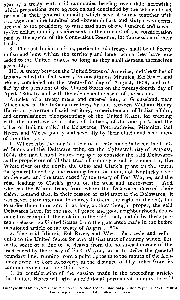 ―139― ―139―
also by a treaty with said companies bearing even date herewith;
which proportions were agreed on and concluded by the whole of said
nations in their general council; which several sums, together with
two thousand nine hundred and sixteen dollars and sixty-seven cents,
secured to the president, to raise said sum of one hundred and seven-
ty-five dollars annuity as aforesaid, is the amount of the consideration
paid by the agents of the Connecticut Reserve, for the cession of their
lands.
6. The said Indian nations, parties to this treaty, shall be at liberty
to fish and hunt within the territory and lands which they have now
ceded to the United States, so long as they shall demean themselves
peaceably.
III. A treaty between the United States of America, and the tribes of
Indians called the Delawares, Pottawatimies, Miamies, Eel River, and
Weas, concluded on the twenty-first day of August, 1805, and rati-
fied by the president of the United States on the twenty-fourth day of
April, 1806, by and with the advice and consent of the senate.
Articles of a treaty made and entered into, at Grouseland, near
Vincennes, in the Indiana territory, by and between William Henry
Harrison, governor of said territory, superintendant of Indian affairs,
and commissioner plenipotentiary of the United States, for treating
with the north-western tribes of Indians, of the one part, and the
tribes of Indians called the Delawares, Pottawatimies, Miamies, Eel
River, and Weas, jointly and severally by their chiefs and head men,
of the other part.
1. Whereas by the fourth article of a treaty made between the Unit-
ed States and the Delaware tribe, on the eighteenth day of August,
1804, the said United States engaged to consider the said Delawares
as the proprietors of all that tract of country which is bounded by the
White river on the north, the Ohio and Clark's grant on the south,
the general boundary line running from the mouth of Kentucky river
on the east, and the tract ceded by the treaty of Fort Wayne, and the
road leading to Clark's grant on the west and south-west. And
whereas the Miami tribe, from whom the Delawares derived their
claim, contend that, in their cession of said tract to the Delawares, it
was never their intention to convey to them the right of the soil, but
to suffer them to occupy it as long as they thought proper, the said
Delawares have, for the sake of peace and good neighbourhood, deter-
mined to relinquish their claim to the said tract, and do by these pre-
sents release the United States from the guarantee made in the before
mentioned article of the treaty of August, 1804.
2. The said Miami, Eel River, and Wea tribes cede and relin-
quish to the United States for ever all that tract of country which lies
to the south of a line to be drawn from the north-east corner of the
tract ceded by the treaty of Fort Wayne, so as to strike the general
boundary line, running from a point opposite to the mouth of the Ken-
tucky river, to Fort Recovery, at the distance of fifty miles from its
commencement on the Ohio river.
3. In consideration of the cession made in the preceding article,
the United States will give an additional permanent annuity to said
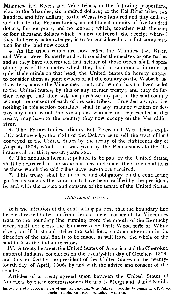 ―140― ―140―
Miamies, Eel River, and Wea tribes, in the following proportions,
viz: to the Miamies, six hundred dollars; to the Eel River tribe, two
hundred and fifty dollars; to the Weas, two hundred and fifty dollars;
and also to the Pottawatimies, an additional annuity of five hundred
dollars, for ten years, and no longer; which, together with the sum
of four thousand dollars which is now delivered, the receipt whereof
they do hereby acknowledge, is to be considered as a full compensa-
tion for the land now ceded.
4. As the tribes which are now called the Miamies, Eel River,
and Weas were formerly and still consider themselves as one nation,
and as they have determined that neither of those tribes shall dispose
of any part of the country which they hold in common; in order to
quiet their minds on that head, the United States do hereby engage
to consider them as joint owners of all the country on the Wabash and
its waters, above the Vincennes tract, and which has not been ceded
to the United States, by this or any former treaty; and they do fur-
ther engage that they will not purchase any part of the said country
without the consent of each of the said tribes. Provided always, that
nothing in this section contained shall in any manner weaken or des-
troy any claim which the Kickapoos, who are not represented at this
treaty, may have to the country they now occupy on the Vermillion
river.
5. The Pottawatimies, Miami, Eel Rivei, and Wea tribes expli-
citly acknowledge the right of the Delawares to sell the tract of land
conveyed to the United States by the treaty of the eighteenth day of
August, 1804, which tract was given by the Piankeshaws to the De-
lawares about thirty-seven years ago.
6. The annuities herein stipulated to be paid by the United States,
shall be delivered in the same manner, and under the same conditions
as those which the said tribes have heretofore received.
7. This treaty shall be in force and obligatory on the contracting
parties as soon as the same shall have been ratified by the president,
by and with the advice and consent of the senate of the United States.
Additional article.
It is the intention of the contracting parties, that the boundary line
herein directed to be run from the north-east corner of the Vincennes
tract to the boundary line running from the mouth of the Kentucky
river, shall not cross the Embarrass or Drift Wood fork of White
river, but if it should strike the said fork, such an alteration in the
direction of the said line is to be made, as will leave the whole of the
said fork in the Indian territory.
IV. A treaty between the United States of America and the Cherokee
nation of Indians, concluded on the twenty-fifth day of October, 1805,
and duly ratified by the president of the United States on the twenty-
fourth day of April, 1806, by and with the advice and consent of the
senate.
Articles of a treaty agreed upon between the United States of
America, by their commissioners Return J. Meigs and Daniel Smith,
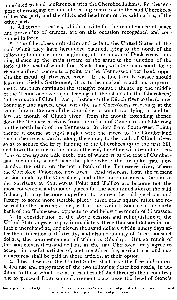 ―141― ―141―
appointed to hold conferences with the Cherokee Indians, for the pur-
pose of arranging certain interesting matters with the said Cherokees,
of the one part, and the chiefs and head men of the said nation, of the
other part.
1. All former treaties, which provide for the maintenance of peace
and preventing of crimes, are on this occasion recognized and con-
tinued in force.
2. The Cherokees quit claim and cede to the United States all the
land which they have heretofore claimed, lying to the north of the
following boundary line: beginning at the mouth of Duck river, run-
ning thence up the main stream of the same to the junction of the
fork, at the head of which Fort Nash stood, with the main south fork;
thence a direct course to a point on the Tennessee river bank oppo-
site the mouth of Hiwassee river. If the line from Hiwassee should
leave out Field's Settlement, it is to be marked round his improve-
ment, and then continued the straight course; thence up the middle
of the Tennessee river (but leaving all the islands to the Cherokees)
to the mouth of Clinch river; thence up the Clinch river to the former
boundary line agreed upon with the said Cherokees, reserving at the
same time to the use of the Cherokees a small tract lying at and be-
low the mouth of Clinch river; from the mouth extending thence
down the Tennessee river, from the mouth of Clinch to a notable rock
on the north bank of the Tennessee, in view from South-west Point;
thence a course at right angles with the river, to the Cumberland
road; thence eastwardly along the same, to the bank of Clinch river,
so as to secure the ferry landing to the Cherokees up to the first hill,
and down the same to the mouth thereof, together with two other sec-
tions of one square mile each, one of which is at the foot of Cumber-
land mountain, at and near the place where the turnpike gate now
stands; the other on the north bank of the Tennessee river, where
the Cherokee Talootiske now lives. And whereas, from the present
cession made by the Cherokees, and other circumstances, the site of
the garrisons at South-west Point and Tellico are become not the
most convenient and suitable places for the accommodation of the said
Indians, it may become expedient to remove the said garrisons and
factory to some more suitable place; three other square miles are re-
served for the particular disposal of the United States on the north
bank of the Tennessee, opposite to and below the mouth of Hiwassee.
3. In consideration of the above cession and relinquishment, the
United States agree to pay immediately three thousand dollars in va-
luable merchandize, and eleven thousand dollars within ninety days af-
ter the ratification of this treaty, and also an annuity of three thousand
dollars, the commencement of which is this day. But so much of
the said eleven thousand dollars, as the said Cherokees may agree to
accept in useful articles of, and machines for, agriculture and ma-
nufactures, shall be paid in those articles, at their option.
4. The citizens of the United States shall have the free and unmo-
lested use and enjoyment of the two following described roads, in ad-
dition to those which are at present established through their country;
one to proceed from some convenient place near the head of Stone's
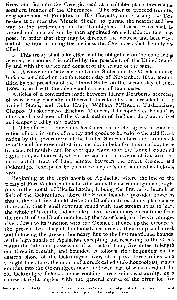 ―142― ―142―
river, and fall into the Georgia road at a suitable place towards the
southern frontier of the Cherokees. The other to proceed from the
neighbourhood of Franklin, or Big Harpath, and crossing the Ten-
nessee at or near the Muscle Shoals, to pursue the nearest and best
way to the settlements on the Tombigbee. These roads shall be
viewed and marked out by men appointed on each side for that pur-
pose, in order that they may be directed the nearest and best ways,
and of the time of doing the business the Cherokees shall be duly no-
tified.
5. This treaty shall take effect and be obligatory on the contracting
parties, as soon as it is ratified by the president of the United States,
by and with the advice and consent of the senate of the same.
V. A convention between the United States and the Creek nation of
Indians, concluded on the fourteenth day of November, 1805, and ra-
tified by the president of the United States on the second day of June,
1806, by and with the advice and consent of the senate.
Articles of a convention made between Henry Dearborn, secretary
of war, being specially authorized therefore by the president of the
United States, and Oche Haujo, William M'Intoch, Tuskenchaw,
Chapco, Tuskenchaw, Enchaw Thlucco, Checopeheke, Emanthow,
chiefs and head men of the Creek nation of Indians, duly authorized
and empowered by said nation.
1. The aforesaid chiefs and head men do hereby agree, in conside-
ration of certain sums of money and goods to be paid to the said Creek
nation by the government of the United States as hereafter stipulated,
to cede and for ever quit claim, and do, in behalf of their nation, here-
by cede, relinquish, and for ever quit claim unto the United States all
right, title, and interest, which the said nation have or claim, in or un-
to a certain tract, of land, situate between the rivers Oconee and
Ockmulgee (except as hereinafter excepted), and bounded as follows,
viz:
Beginning at the high shoals of Apalacha, where the line of the
treaty of fort Wilkinson touches the same, thence running in a straight
line, to the mouth of Ulcofauhatche, it being the first large branch or
fork of the Ockmulgee, above the Seven Islands: provided however,
that if the said line should strike the Ulcofauhatche, at any place above
its mouth, that it shall continue round with that stream so as to leave
the whole of it on the Indian side; then the boundary to continue from
the mouth of the Ulcofauhatche, by the water's edge of the Ockmulgee
river, down to its junction with the Oconee; thence up the Oconee to
the present boundary at Tauloohatchee creek; thence up said creek
and following the present boundary line to the first mentioned bounds,
at the high shoals of Apalacha, excepting and reserving to the Creek
nation the title and possession of a tract of land, five miles in length
and three in breadth, and bounded as follows, viz: beginning on the
eastern shore of the Ockmulgee river, at a point three miles on a
straight line-above the mouth of a creek called Oakchoncoolgau, which
empties into the Ockmulgee, near the lower part of what is called the
old Ockmulgee fields—thence running three miles eastwardly, on a
course at right angles with the general course of the river for five
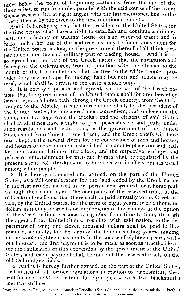 ―143― ―143―
miles below the point of beginning;—thence, from the end of the
three miles, to run five miles parallel with the said course of the river;
thence westwardly, at right angles with the last mentioned line to the
river; thence by the river to the first mentioned bounds.
And it is hereby agreed, that the president of the United States, for
the time being, shall have a right to establish and continue a military
post, and a factory or trading house on said reserved tract; and to
make such other use of the said tract as may be found convenient for
the United States, as long as the government thereof shall think pro-
per to continue the said military post or trading house. And it is al-
so agreed on the part of the Creek nation, that the navigation and
fishery of the Ockmulgee, from its junction with the Oconee to the
mouth of the Ulcofauhatche, shall be free to the white people; pro-
vided they use no traps for taking fish; but nets and seines may be
used, which shall be drawn to the eastern shore only.
2. It is hereby stipulated and agreed, on the part of the Creek na-
tion, that the government of the United States shall for ever hereafter
have a right to a horse path, through the Creek country, from the Ock-
mulgee to the Mobile, in such direction as shall, by the president of
the United States, be considered most convenient, and to clear out the
same, and lay logs over the creeks: and the citizens of said States
shall at all times have a right to pass peaceably on said path, under
such regulations and restrictions, as the government of the United
States shall from time to time direct; and the Creek chiefs will have
boats kept at the several rivers for the conveyance of men and horses,
and houses of entertainment established at suitable places on said path
for the accommodation of travellers; and the respective ferriages and
prices of entertainment for men and horses shall be regulated by the
present agent, col. Hawkins, or by his successor in office, or as is usual
among white people.
3. It is hereby stipulated and agreed, on the part of the United
States, as a full consideration for the land ceded by the Creek nation
in the first article, as well as by permission granted for a horse path
through their country, and the occupancy of the reserved tract, at the
old Ockmulgee fields, that there shall be paid annually to the Creek na-
tion, by the United States, for the term of eight years, twelve thousand
dollars in money or goods, or implements of husbandry, at the option
of the Creek nation, seasonably signified from time to time, through
the agent of the United States, residing with said nation, to the de-
partment of war; and eleven thousand dollars shall be paid in like
manner, annually, for the term of the ten succeeding years, making
in the whole eighteen payments in the course of eighteen years, with-
out interest: the first payment is to be made as soon as practicable af-
ter the ratification of this convention by the government of the United
States, and each payment shall be made at the reserved tract, on the
old Ockmulgee fields.
4. And it is hereby further agreed, on the part of the United States,
that in lieu of all former stipulations in relation to blacksmiths, they
will furnish the Creek nation, for eight years, with two blacksmiths
and two strikers.
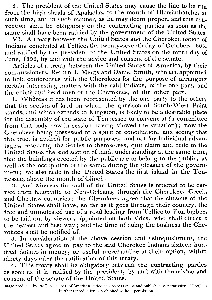 ―144― ―144―
5. The president of the United States may cause the line to be run
from the high shoals of Apalacha, to the mouth of Ulcofauhatche, at
such time, and in such manner, as he may deem proper, and this con-
vention shall be obligatory on the contracting parties as soon as the
same shall have been ratified by the government of the United States.
VI. A treaty between the United States and the Cherokee nation of
Indians, concluded at Tellico, the twenty-seventh day of October, 1805,
and ratified by the president of the United States on the tenth day of
June, 1806, by and with the advice and consent of the senate.
Articles of a treaty between the United States of America, by their
commissioners, Return J. Meigs and Daniel Smith, who are appointed
to hold conferences with the Cherokees for the purpose of arranging
certain interesting matters with the said Indians, of the one part, and
the chiefs and head men of the Cherokees, of the other part.
1. Whereas it has been represented by the one party to the other,
that the section of land on which the garrison of South-West Point
stands, and which extends to Kingston, is likely to be a desirable place
for the assembly of the state of Tennessee to convene at (a committee
from that body now in session having viewed the situation); now the
Cherokees being possessed of a spirit of conciliation, and seeing that
this tract is desired for public purposes, and not for individual advan-
tages, reserving the ferries to themselves, quit claim and cede to the
United States the said section of land, understanding at the same time,
that the buildings erected by the public are to belong to the public, as
well as the occupation of the same, during the pleasure of the govern-
ment; we also cede to the United States the first island in the Ten-
nessee, above the mouth of Clinch.
2. And whereas the mail of the United States is ordered to be car-
ried from Knoxville to New-Orleans, through the Cherokee, Creek,
and Choctaw countries; the Cherokees agree that the citizens of the
United States shall have, so far as it goes through their country, the
free and unmolested use of a road leading from Tellico to Tombigbee,
to be laid out by viewers appointed on both sides, who shall direct it
the nearest and best way; and the time of doing the business the Che-
rokees shall be notified of.
3. In consideration of the above cession and relinquishment, the
United States agree to pay to the said Cherokee Indians sixteen hun-
dred dollars in money, or useful merchandize at their option, within
ninety days after the ratification of this treaty.
4. This treaty shall be obligatory between the contracting parties
as soon as it is ratified by the president, by and with the advice and
consent of the senate of the United States.
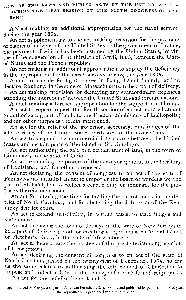 ―145― ―145―
LIST OF THE LAWS AND PUBLIC ACTS OF THE UNITED STATES,
DURING THE FIRST SESSION OF THE NINTH CONGRESS OF THE
SAME.
AN act making an additional appropriation for the naval service,
during the year 1805.
An act supplementary to the act making provision for the payment
of claims of citizens of the United States on the government of France,
the payment of which has been assumed by the United States, by vir-
tue of the convention of the thirtieth of April, 1803, between the Unit-
ed States and the French republic.
An act making an additional appropriation to supply the deficiency
in the appropiation for the naval service, during the year 1805.
An act to provide for light-houses in Long Island Sound; and to
declare Roxbury, in the state of Massachusetts, to be a port of delivery.
An act making provision for defraying any extraordinary expences
attending the intercourse bteween the United States and foreign nations.
An act making a further appropriation for the support of a library.
An act to repeal in part the fourth section of an act entitled an act
to authorize a grant of lands to the French inhabitants of Galliopolis;
and for other purposes therein mentioned.
An act for the relief of the governor, secretary, and judges of the
late territory of the United States north-west of the river Ohio.
An act to suspend the commercial intercourse between the United
States and certain parts of the island of St. Domingo.
An act authorizing the sale of a certain tract of land, in the town of
Cincinnati, in the state of Ohio.
An act extending the powers of the surveyor general to the territory
of Louisiana; and for other purposes.
An act declaring the consent of congress to an act of the state of
Pennsylvania, intituled an act to empower the board of wardens for the
port of Philadelphia to collect a certain duly on tonnage, for the pur-
poses therein mentioned.
An act for altering the time for holding the circuit court, in the dis-
trict of North Carolina; and for abolishing the July term of the Ken-
tucky district court.
An act to extend jurisdiction, in certain cases, to state judges and
state courts.
An act declaring the town of Jersey, in the state of New Jersey, to
be a port of delivery; and for erecting a light-house on Wood Island
or Fletcher's Neck, in the state of Massachusetts.
An act to incorporate the trustees of the presbyterian congregation
of Georgetown.
An act declaring the consent of congress to an act of the state of
South Carolina, passed on the twenty-first of December, 1804, so far
as the same relates to authorizing the city council of Charleston to
impose and collect a duty on the tonnage of vessels from, foreign ports.
An act for the relief of Peter Landais.
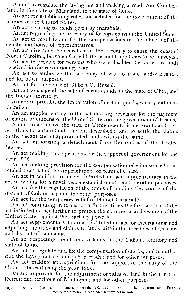 ―146― ―146―
An act to regulate the laying out and making a road from Cumber-
land, in the state of Maryland, to the state of Ohio.
An act for establishing rules and articles for the government of the
armies of the United States.
An act relating to bonds given by marshals.
An act regulating the currency of foreign coins in the United States.
An act to regulate and fix the compensations of the officers of the
senate and house of representatives.
An act directing the secretary of the treasury to cause the coast of
North Carolina, between Cape Matteras and Cape Fear, to be surveyed.
An act to provide for persons who were disabled by known wounds
received in the revolutionary war.
An act to authorize the secretary of war to issue land-warrants;
and for other purposes.
An act or the relief of Gilbert C. Russel.
An act to suspend the sale of certain lands in the state of Ohio, and
the Indiana territory.
An act to prohibit the importation of certain goods, wares, and mer-
chandize.
An act supplementary to the act making provision for the payment
of claims of citizens of the United States on the government of France.
An act to authorize the state of Tennessee to issue grants and per-
fect titles to certain lands therein described; and to settle the claims
to the vacant and unappropriated lands within the same.
An act authorizing a detachment from the militia of the United
States.
An act making appropriations for the support of government for the
year 1806.
An act making provision for the compensation of witnesses who at-
tended the trial of the impeachment of Samuel Chase.
An act in addition to an act intituled an act supplementary to the
act providing for a naval peace establishment; and for other purposes.
An act for the regulation of the times of holding the courts of the
district of Columbia; and for other purposes.
An act for the temporary relief of Hamet Caramalli.
An act continuing in force, for a further time, the first section of the
act intituled an act further to protect the commerce and seamen of the
United States against the Barbary powers.
An act supplementary to an act intituled an act for ascertaining and
adjusting the titles and claims to lands within the territory of Orleans
and district of Louisiana.
An act respecting the claims to lands in the Indiana territory and
state of Ohio.
An act to regulate and fix the compensation of clerks, and to autho-
rize the laying out certain public roads; and for other purposes.
An act making appropriations for the support of the navy of the
United States during the year 1806.
An act to provide for the adjustment of titles of land in the town of
Detroit and territory of Michigan; and for other purposes.
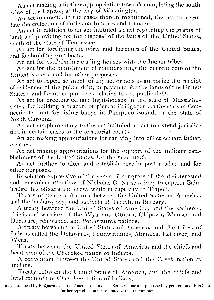 ―147― ―147―
An act making a further appropriation towards completing the south
wing of the Capitol, at the city of Washington.
An act to amend, in the cases therein mentioned, the act to regu-
late the collection of duties on imports and tonnage.
An act in addition to an act intituled an act regulating the grants of
land, and providing for the disposal of the lands of the United States,
south of the state of Tennessee.
An act for fortifying the ports and harbours of the United States,
and for building gun-boats.
An act for establishing trading houses with the Indian tribes.
An act for the punishment of counterfeiting the current coin of the
United States; and for other purposes.
An act to repeal so much of any act or acts as authorize the receipt
of evidences of the public debt, in payment for the lands of the United
States; and for other purposes relative to the public debt.
An act for erecting certain light-houses in the state of Massachu-
setts; for building a beacon, or pier, at Bridgeport, in the state of Con-
necticut; and for fixing buoys in Pamptico Sound, in the state of
North Carolina.
An act supplementary to the act intituled an act to extend jurisdic-
tion in certain cases to the territorial courts.
An act making appropriations for carrying into effect certain Indian
treaties.
An act making appropriations for the support of the military esta-
blishment of the United States, for the year 1806.
An act further to alter and establish certain post roads; and for
other purposes.
Resolution expressive of the sense of congress of the disinterested
and benevolent attentions of Nicholas C. Nissen, Esq. to captain Bain-
bridge, his officers and crew, while in captivity in Tripoli.
Treaty of peace and amity between the United States of America,
and the bashaw, bey, and subjects of Tripoli, in Barbary.
A treaty between the United States of America, and the sachems,
chiefs, and warriors of the Wyandot, Ottawa, Chipawa, Munsee and
Delaware, Shawanee, and Pottawatima nations.
A treaty between the United States of America, and the tribes of
Indians called the Delawares, Pottawatimies, Miamies, Eel river, and
Weas.
Treaty between the United States of America, and the chiefs and
head men of the Cherokee nation of Indians.
A convention between the United States and the Creek nation of Indians.
Treaty between the United States of America, and the chiefs and
head men of the Cherokee nation of Indians.
|